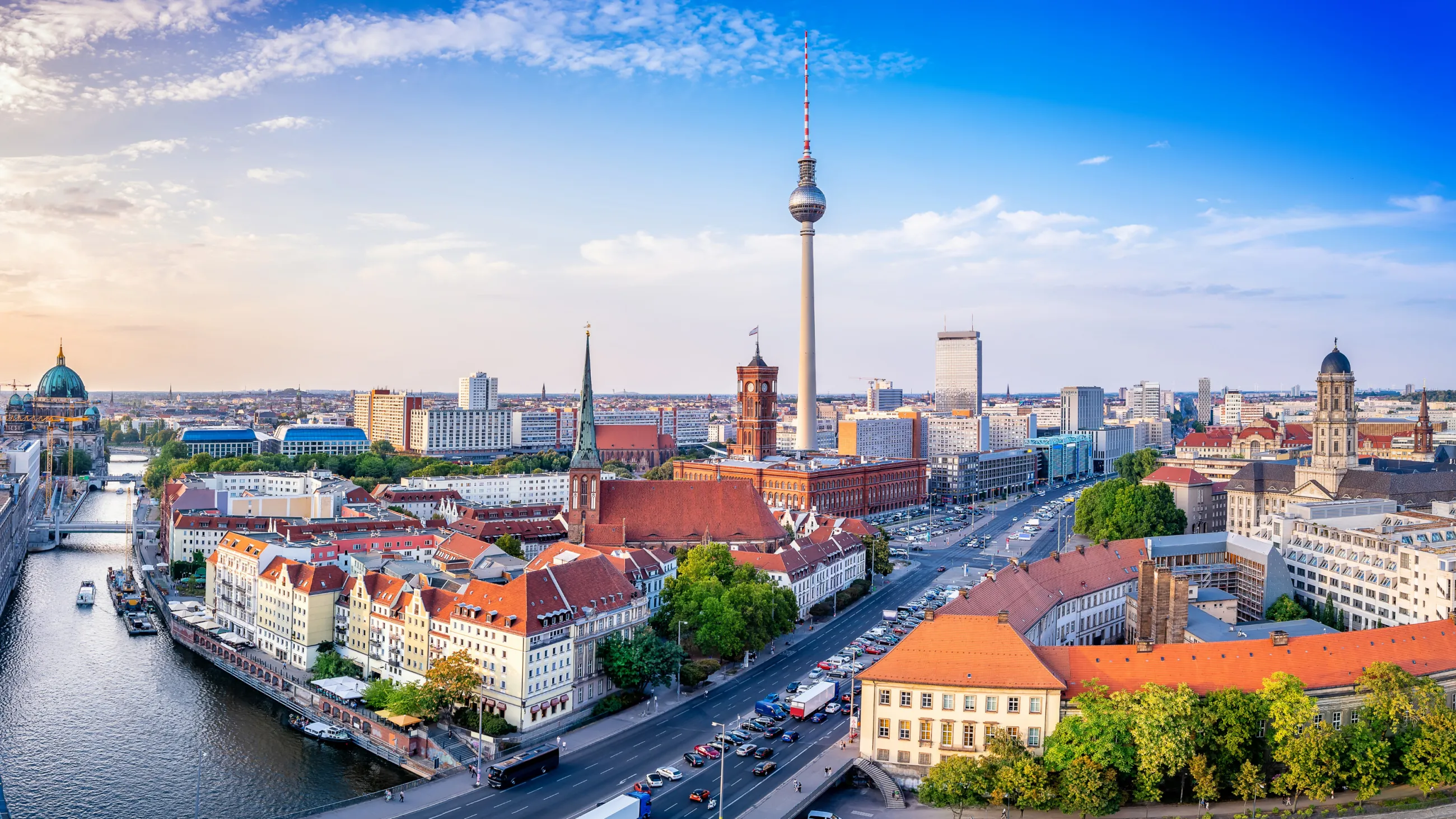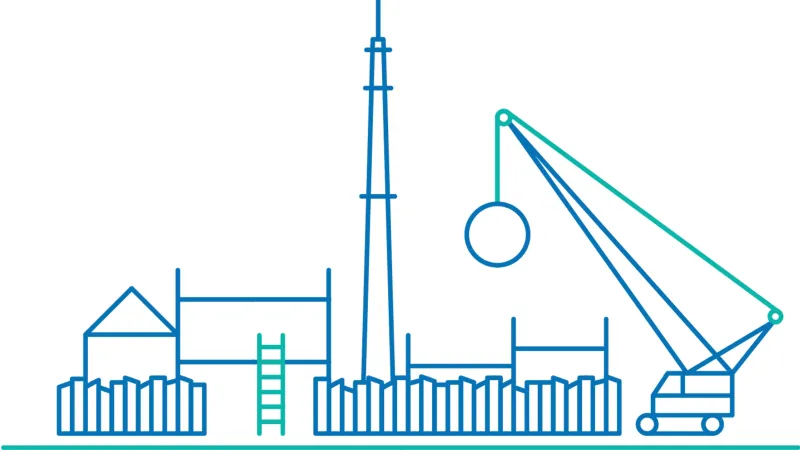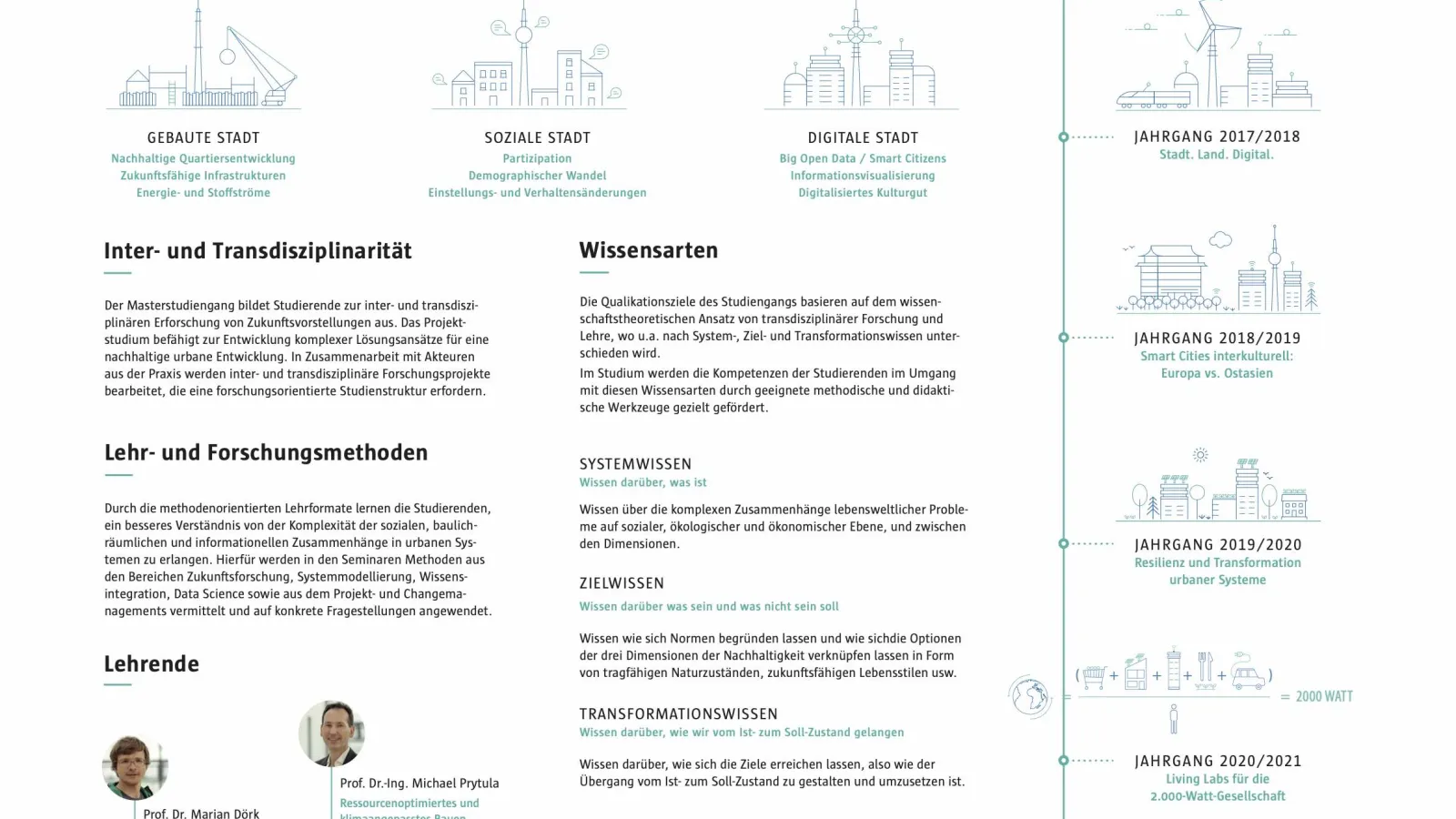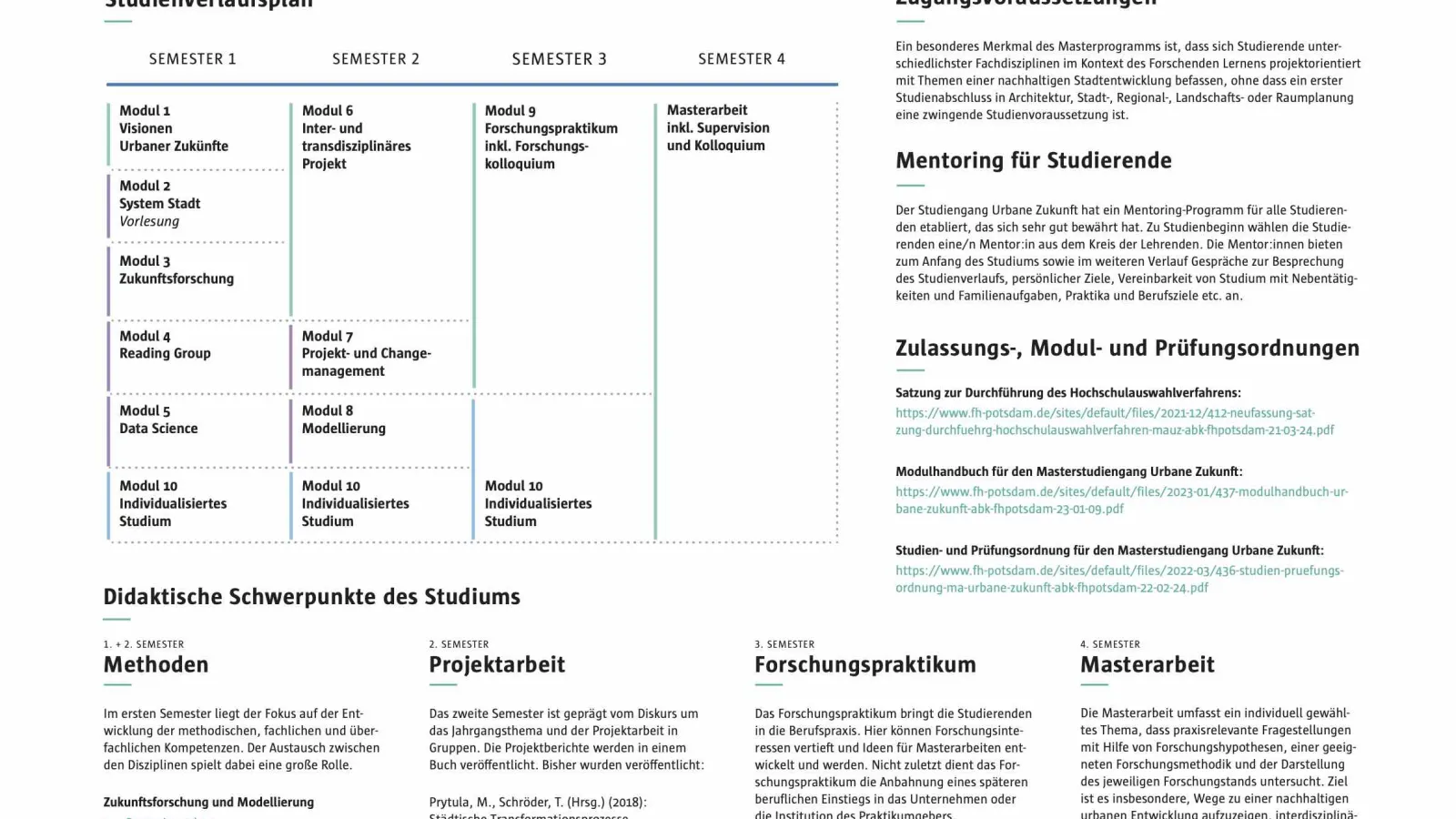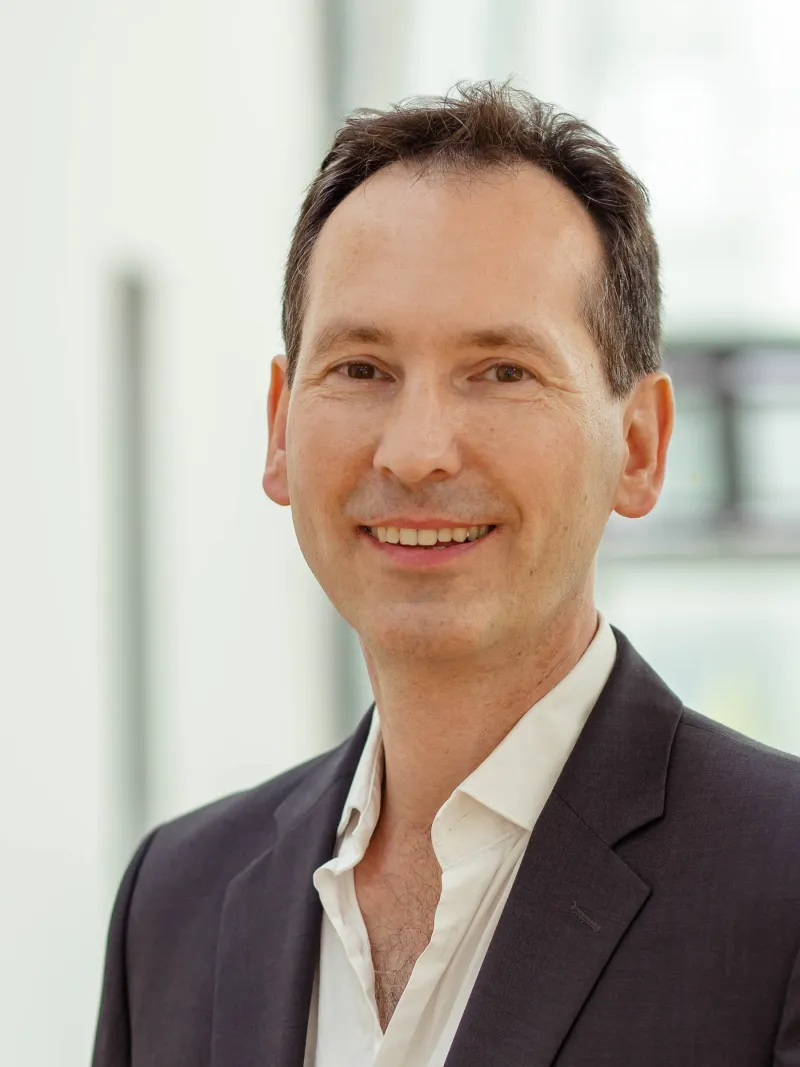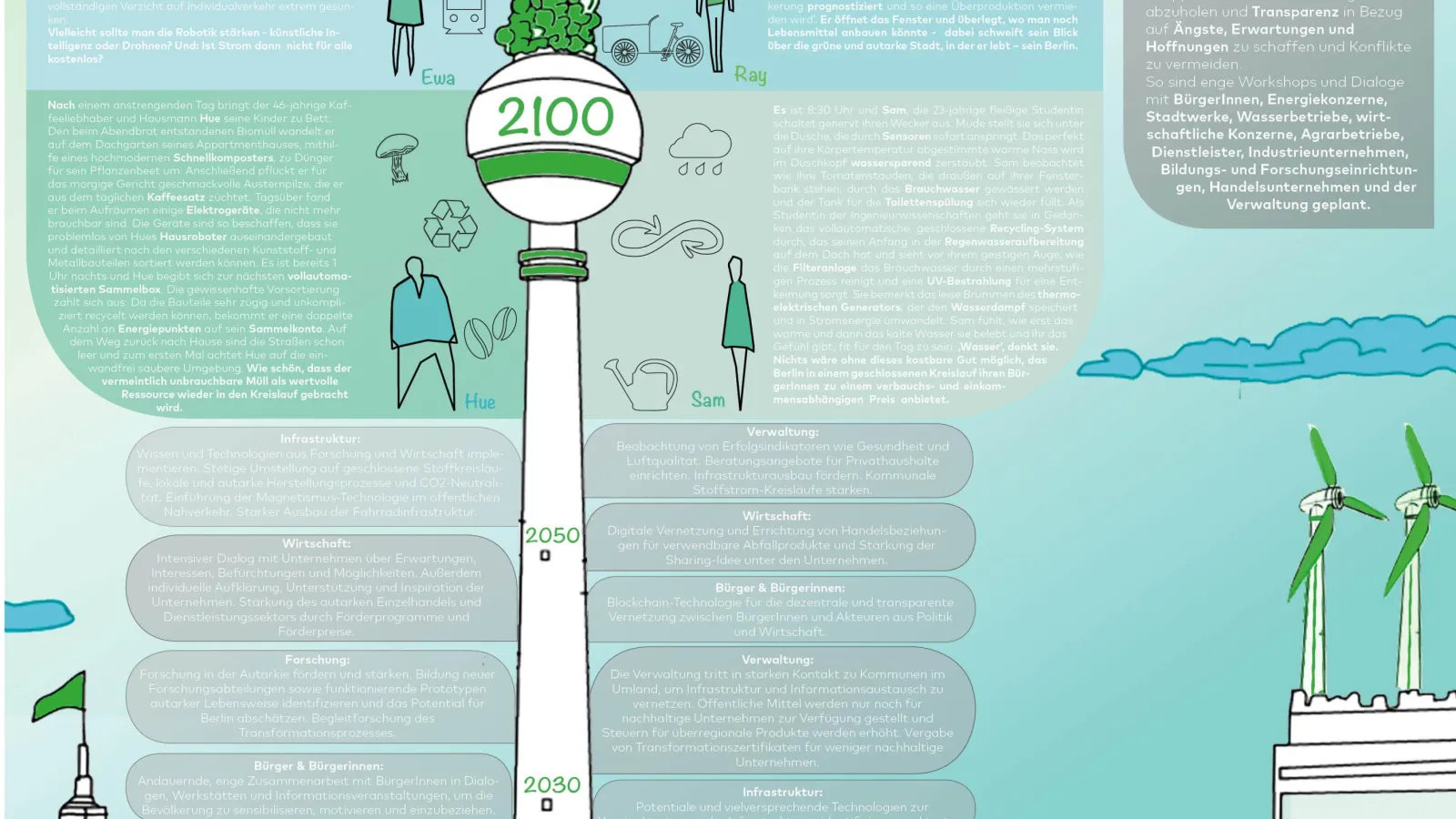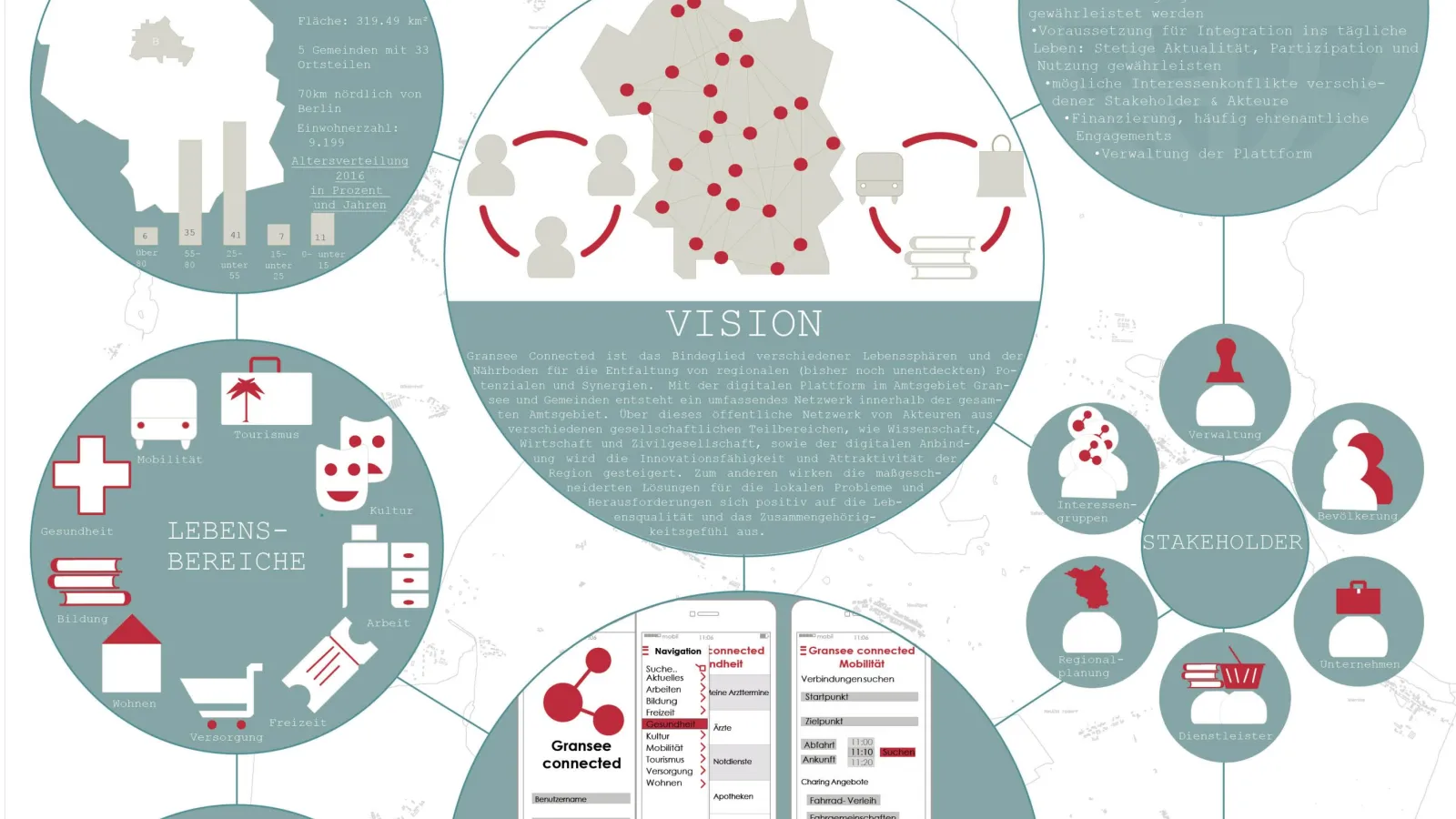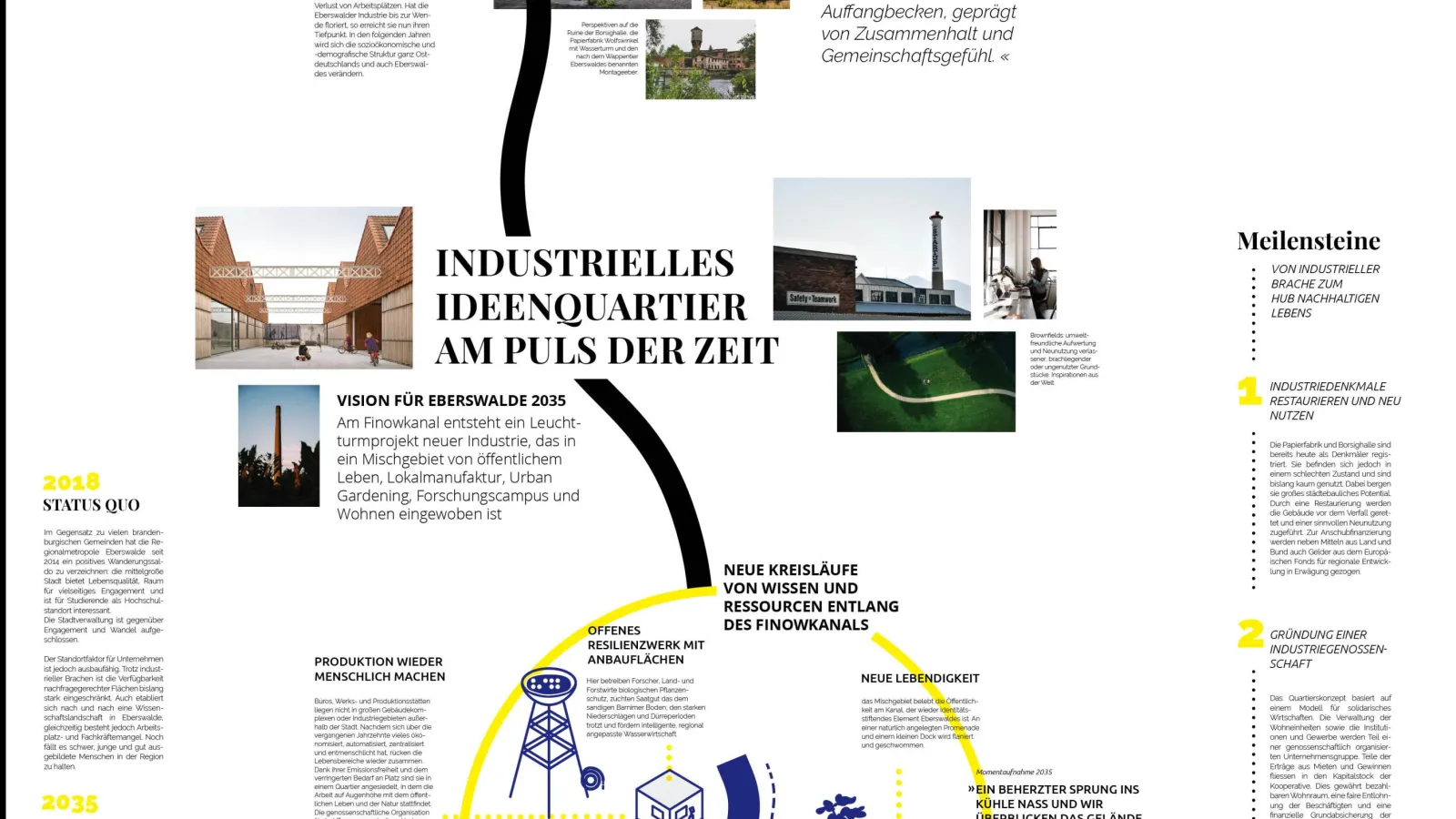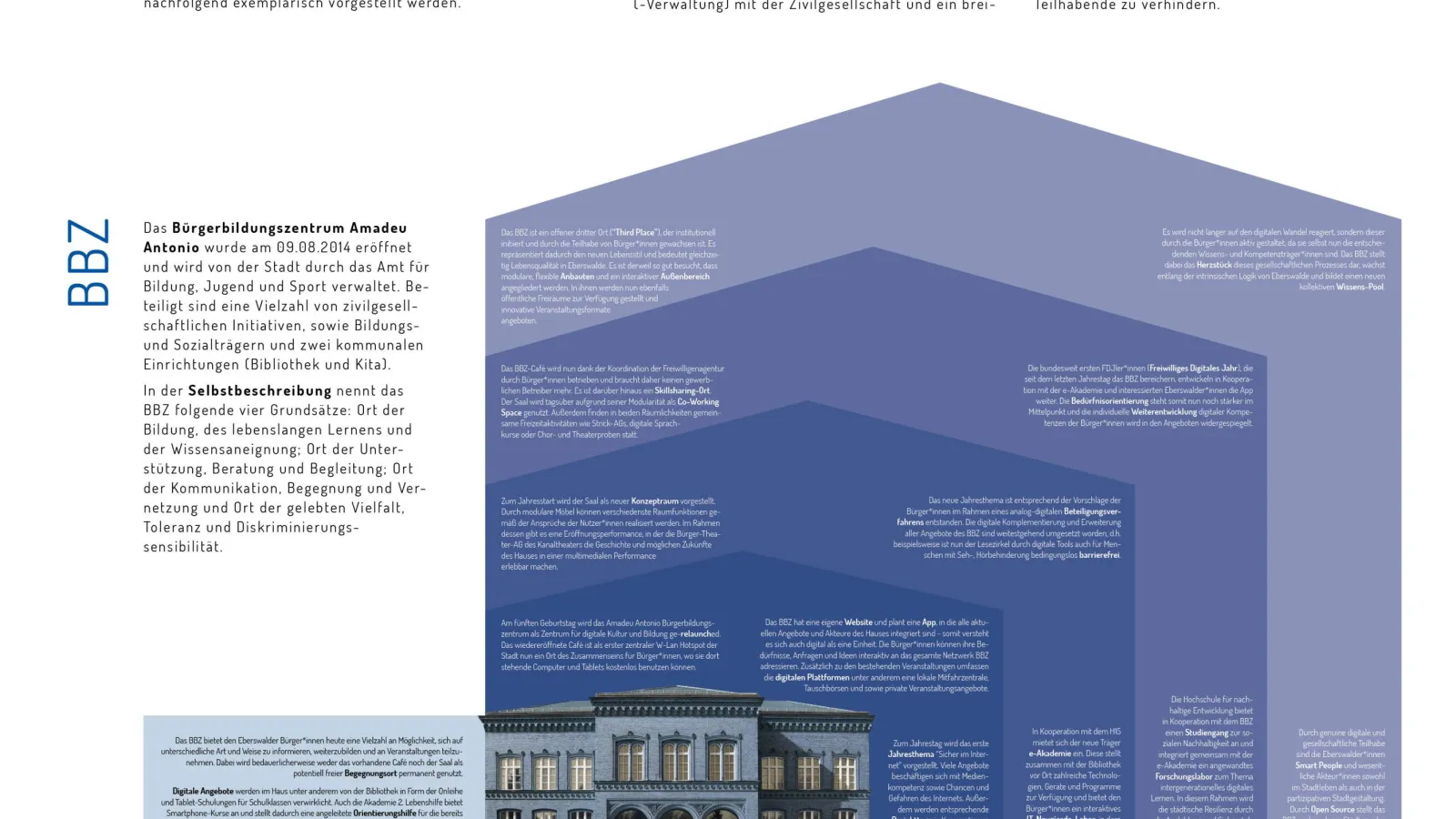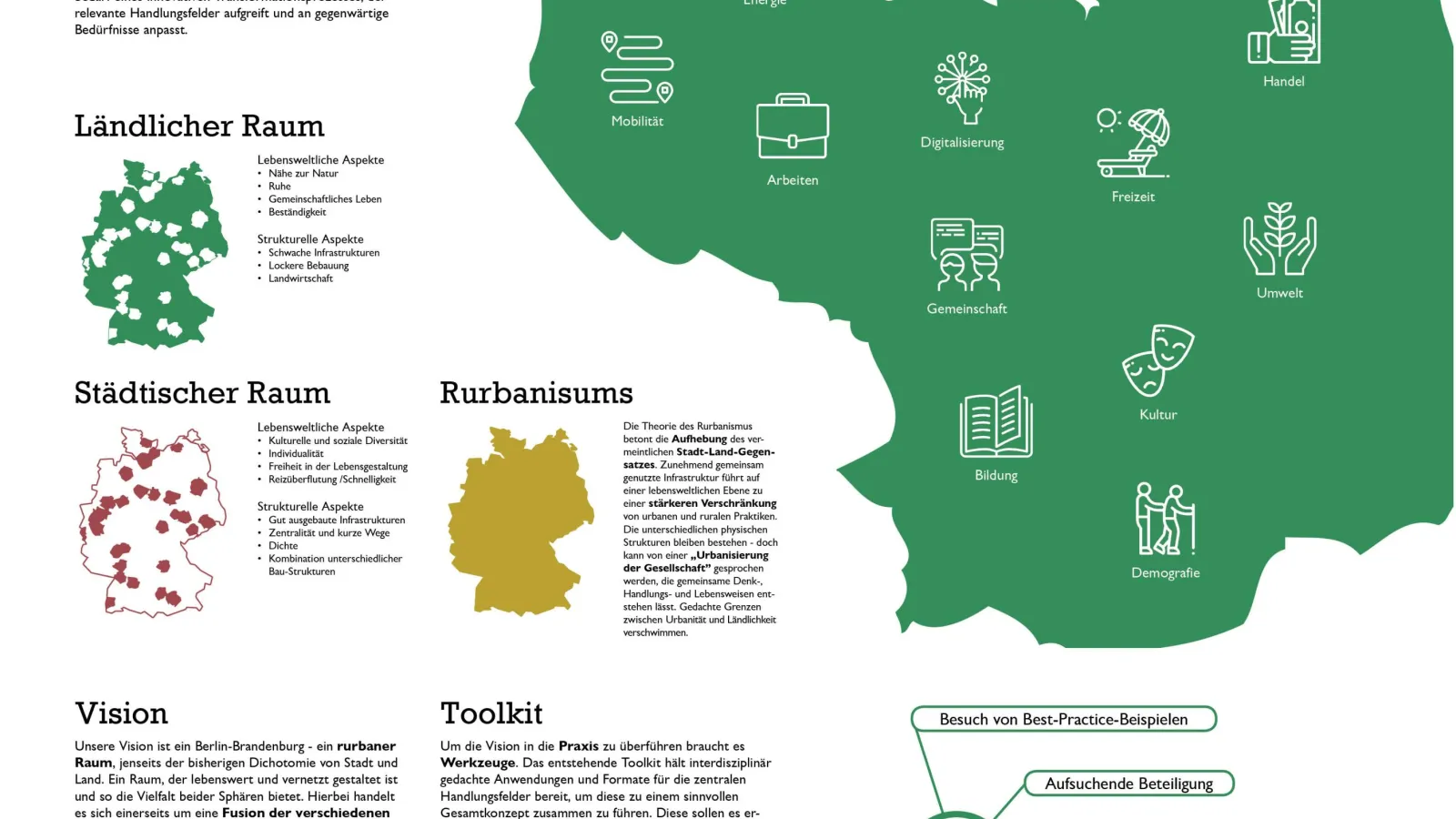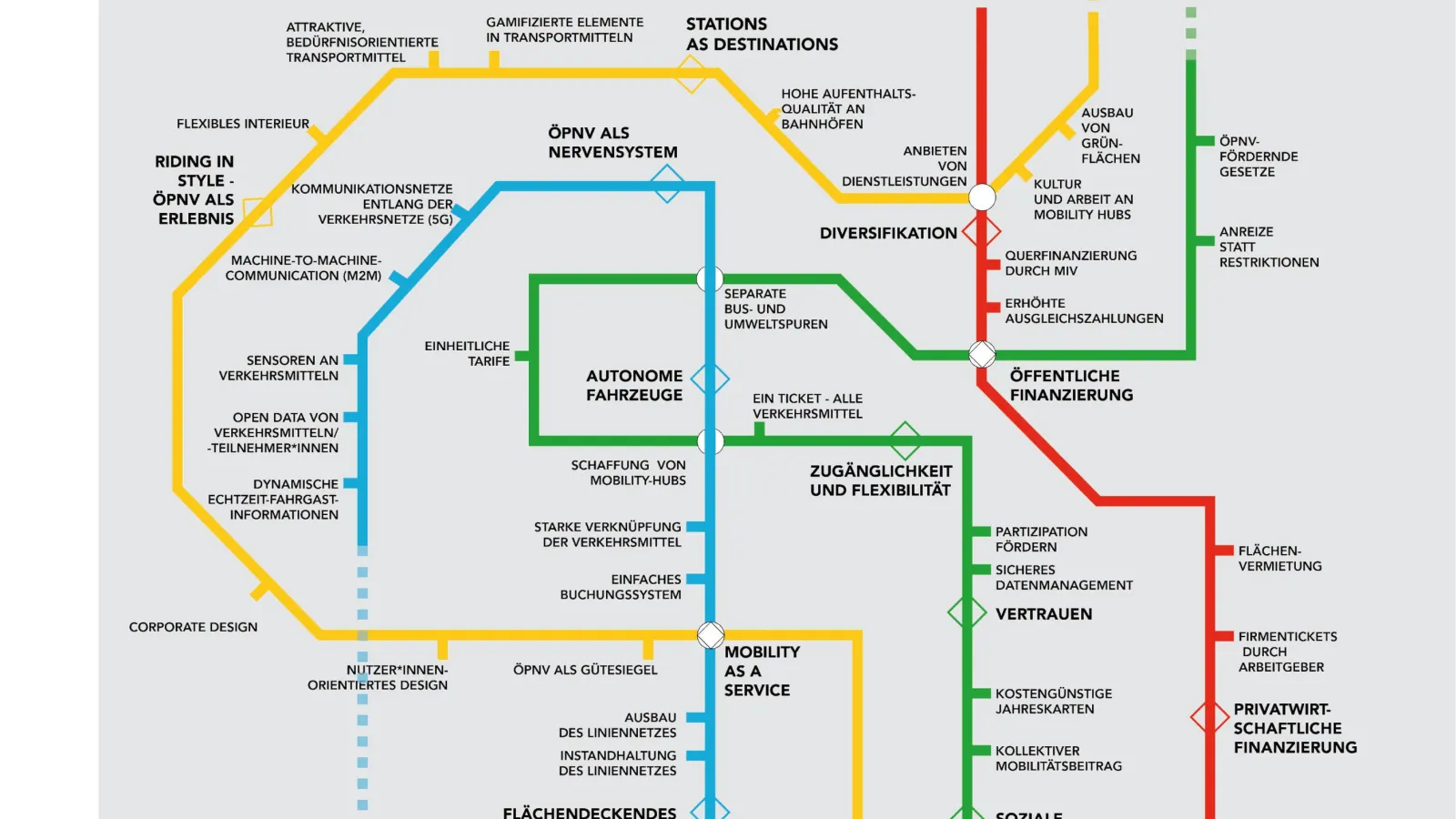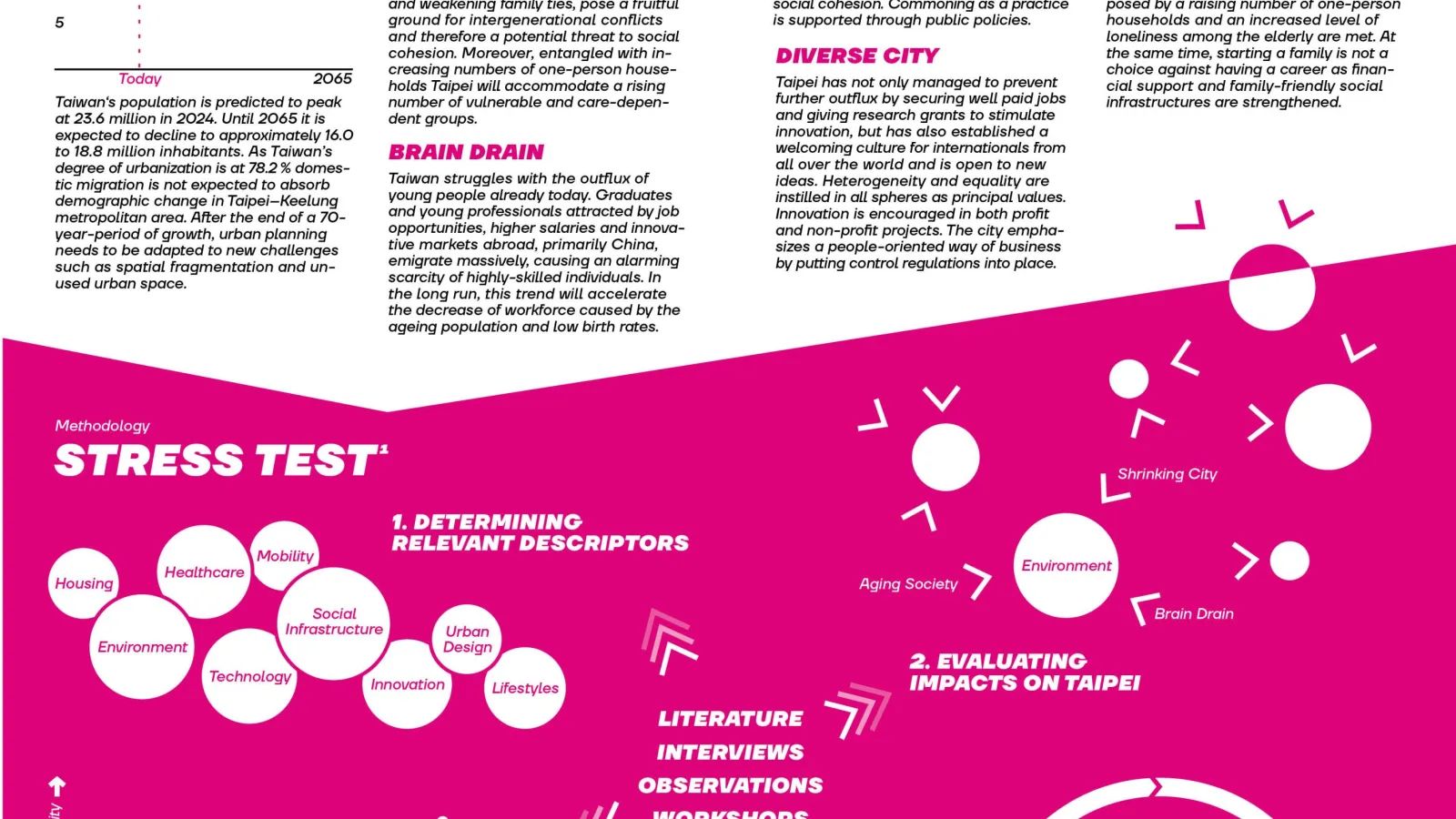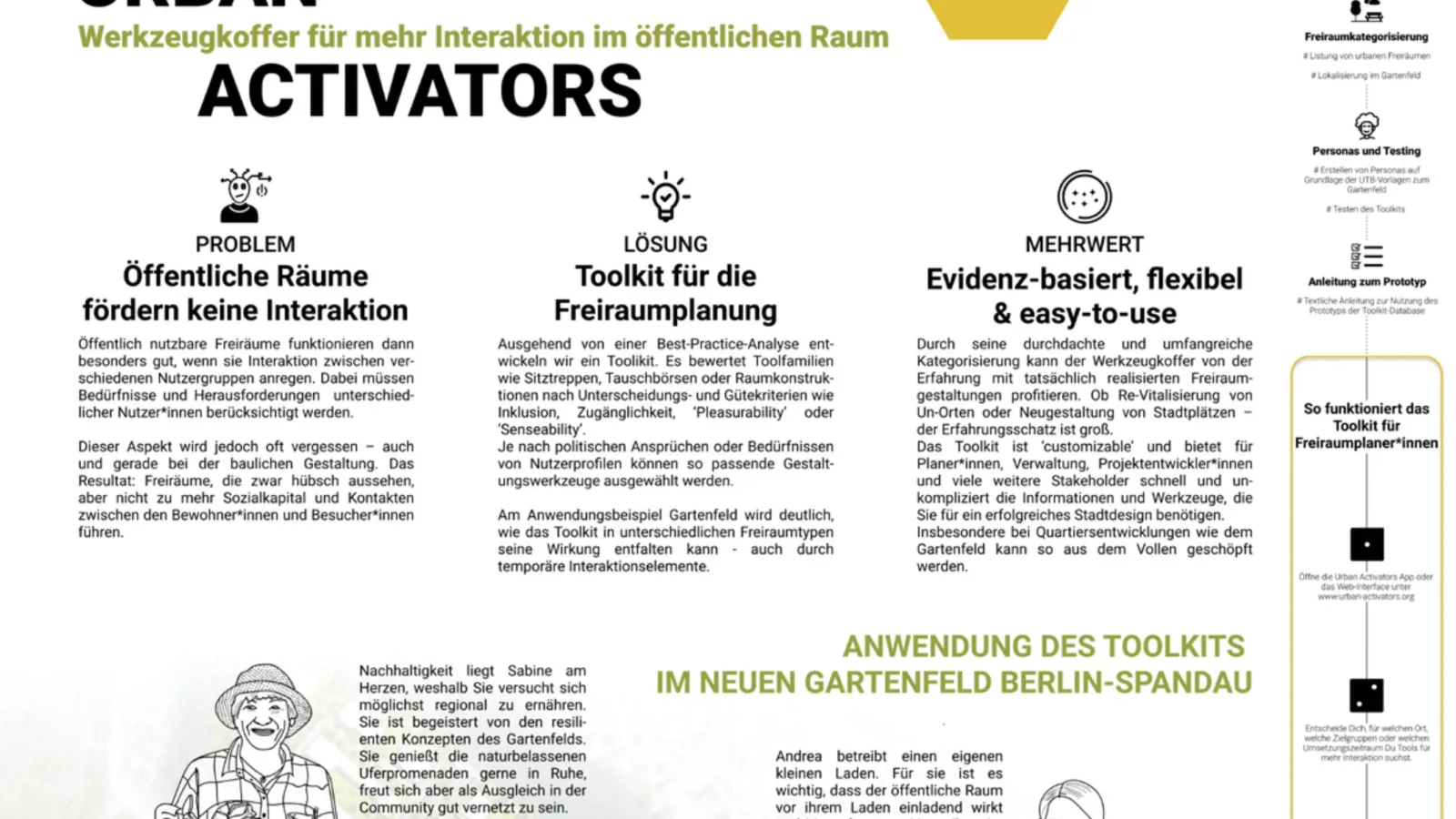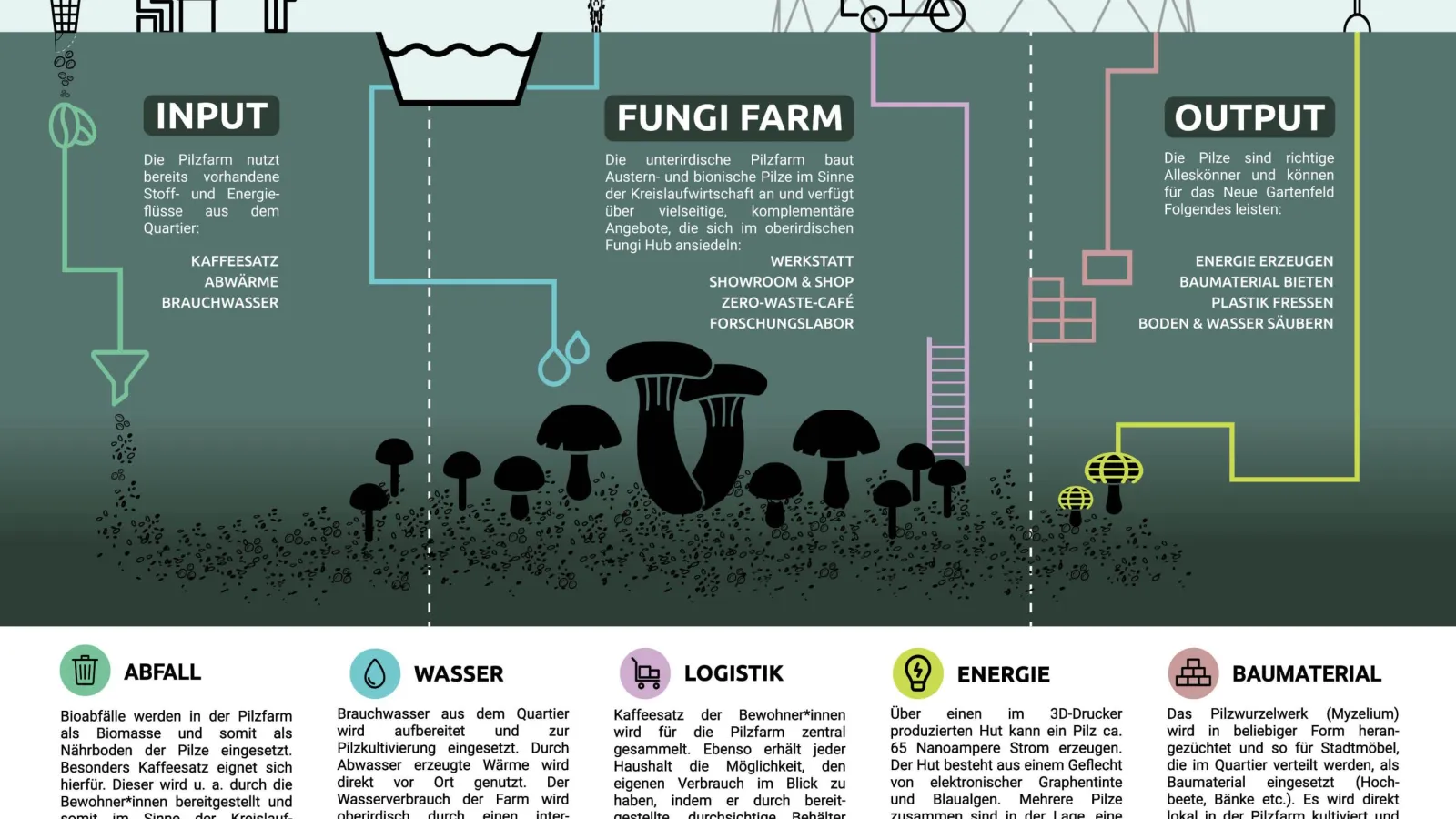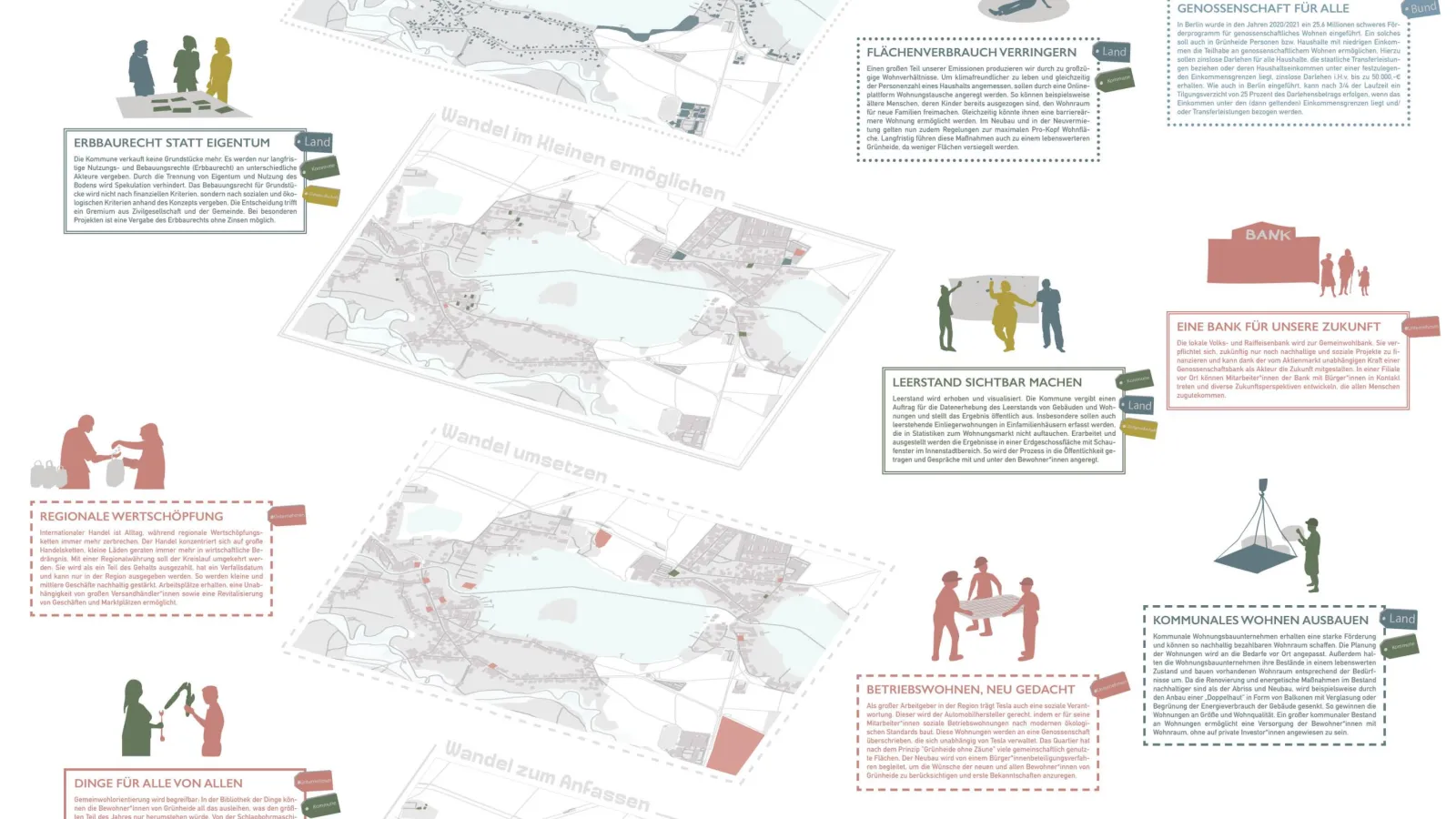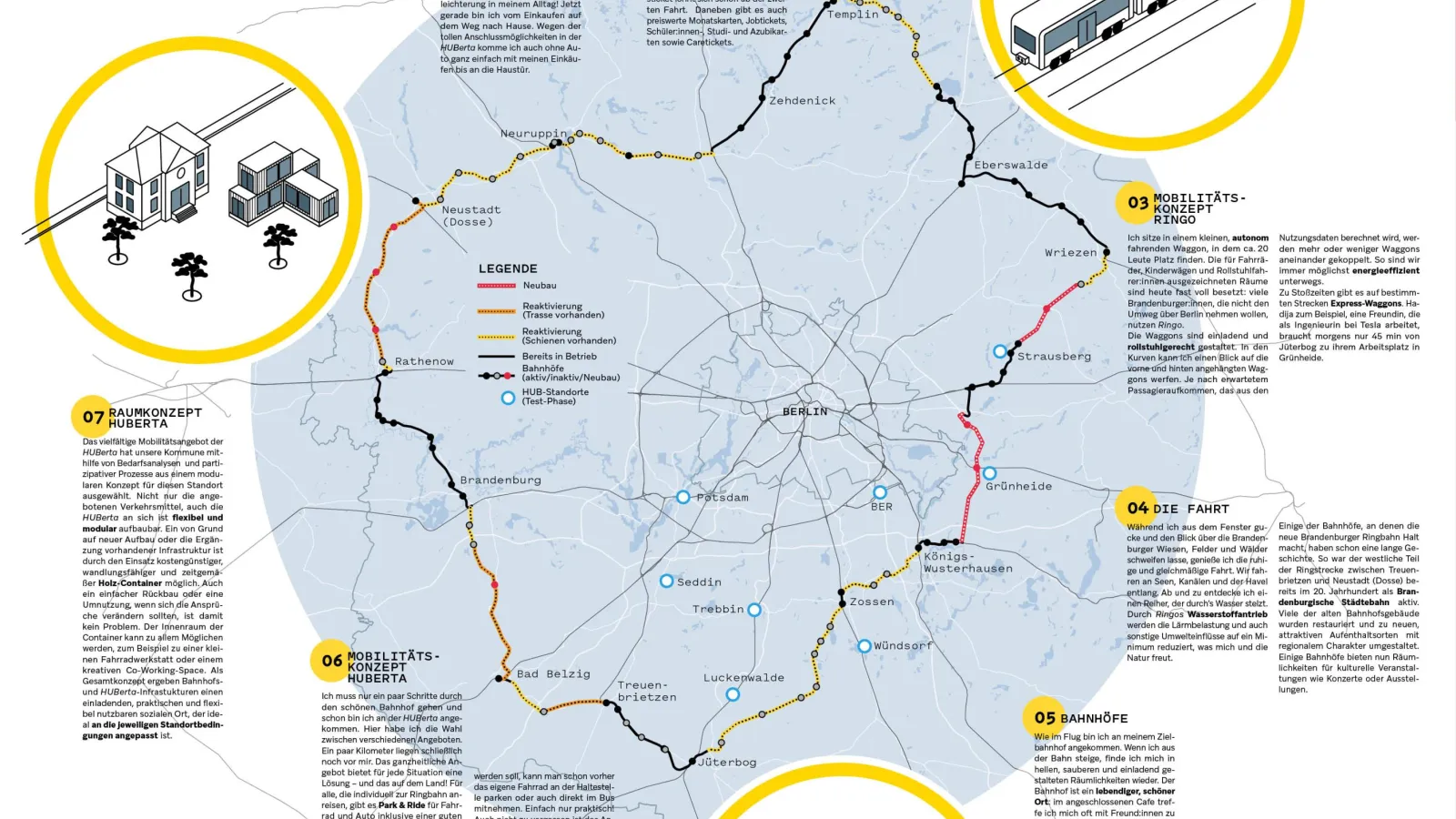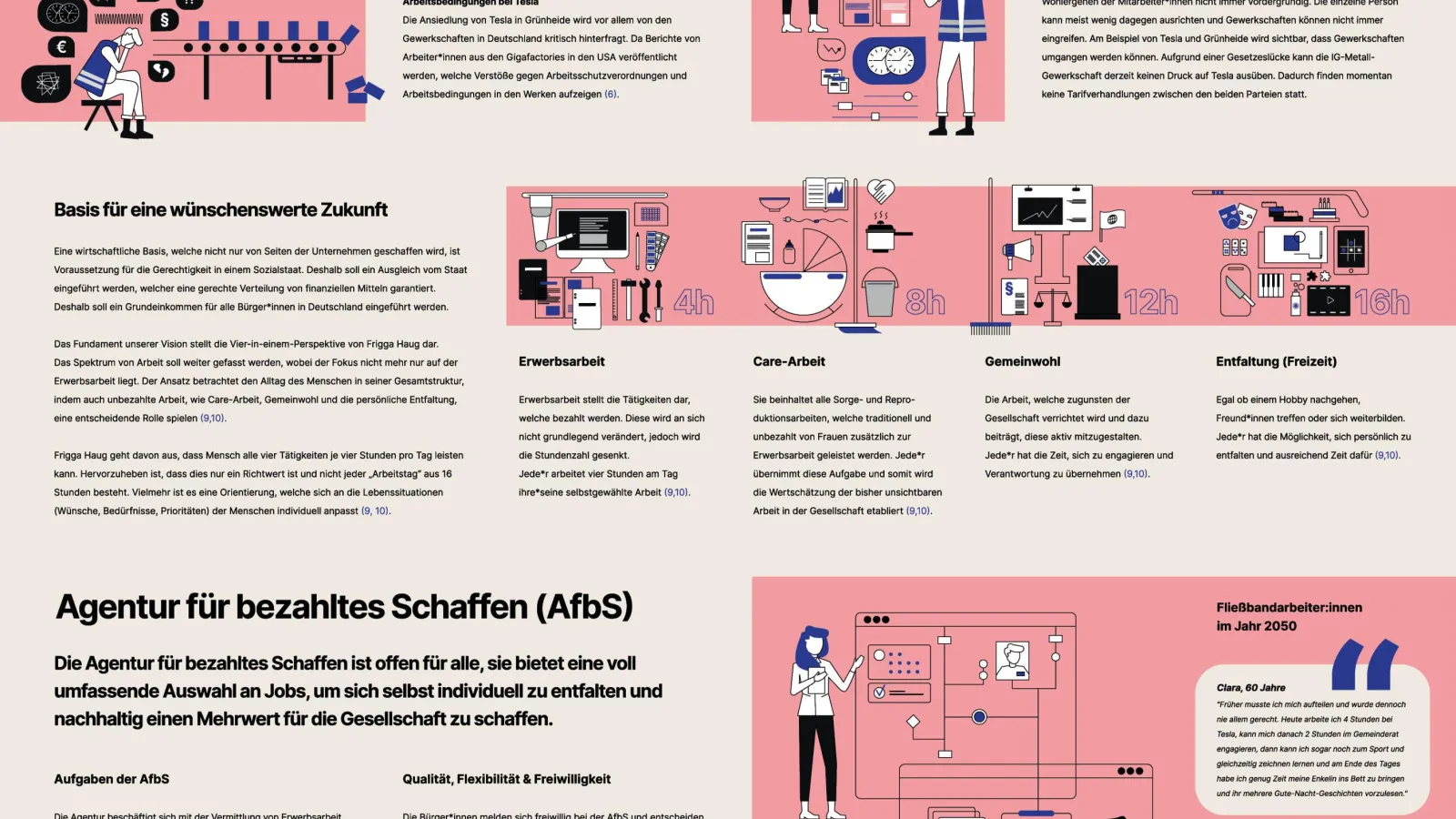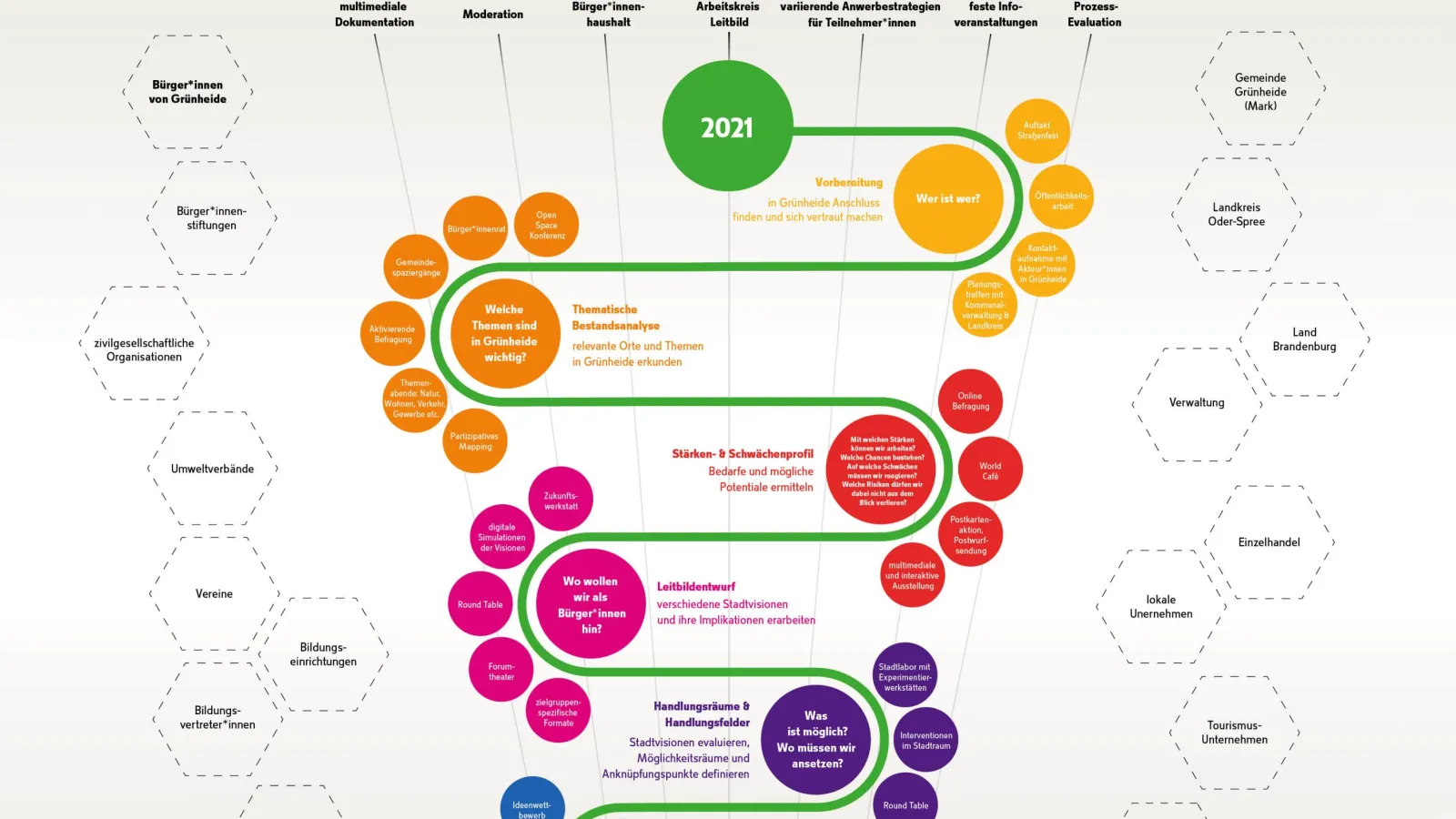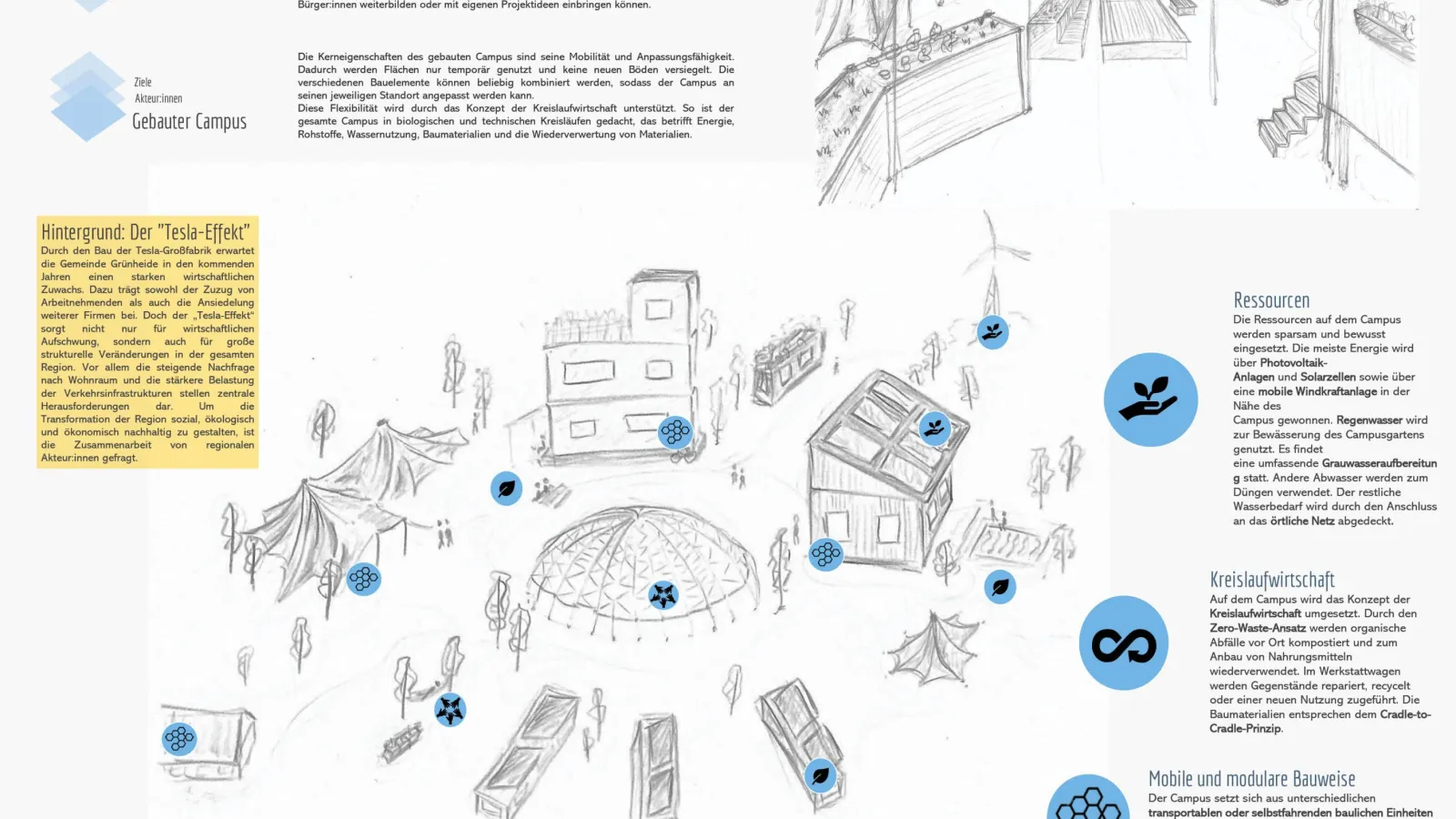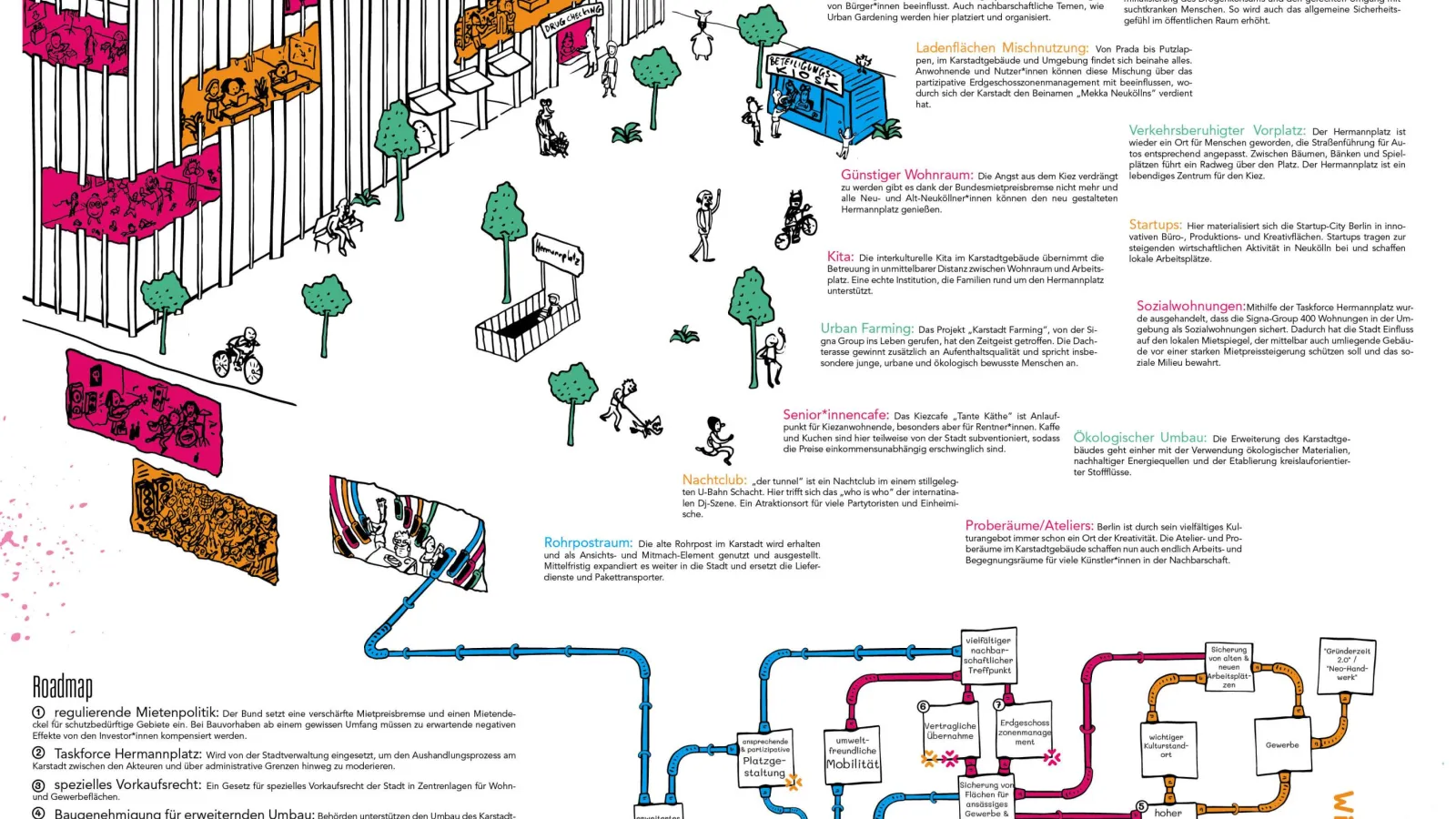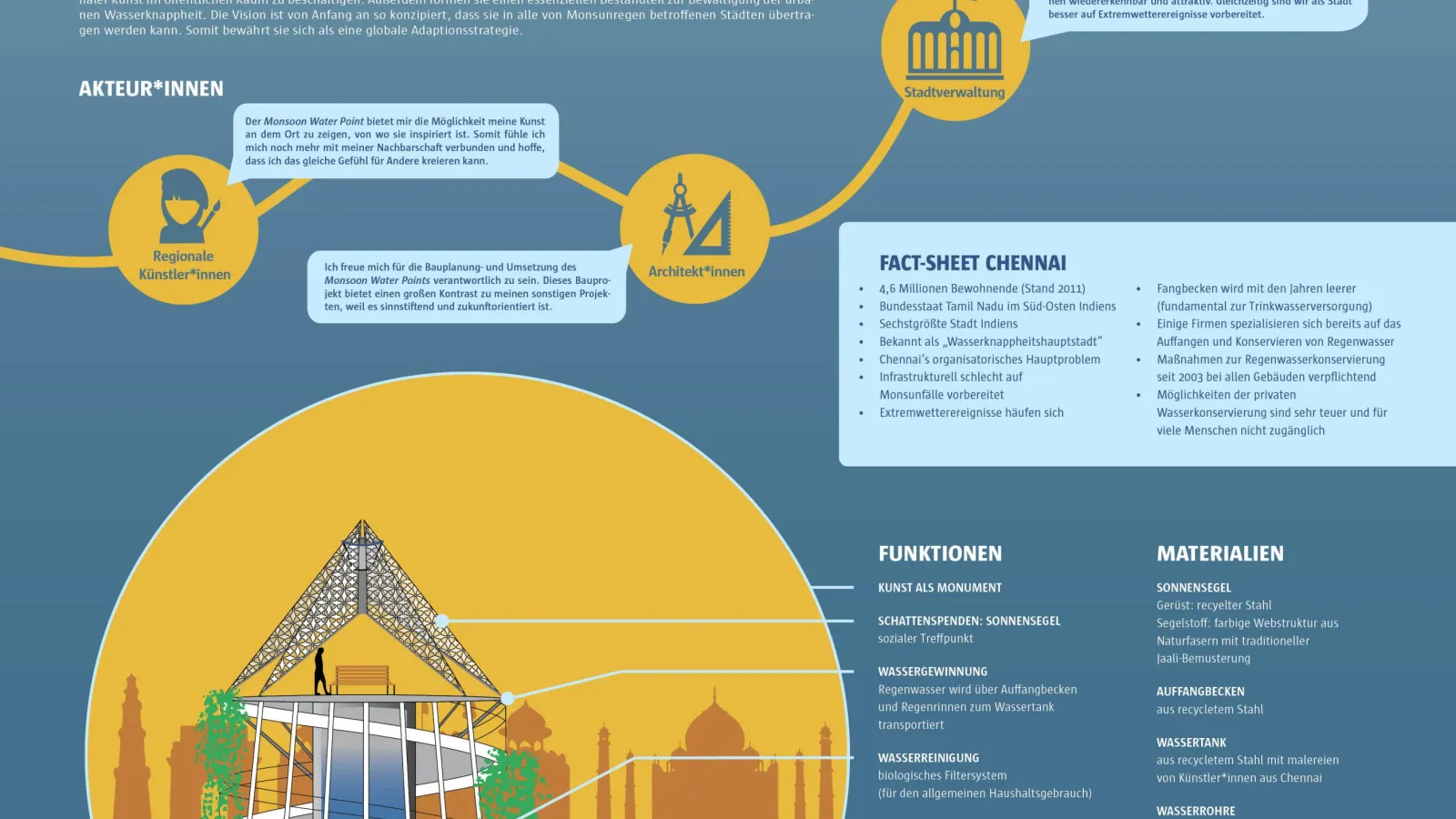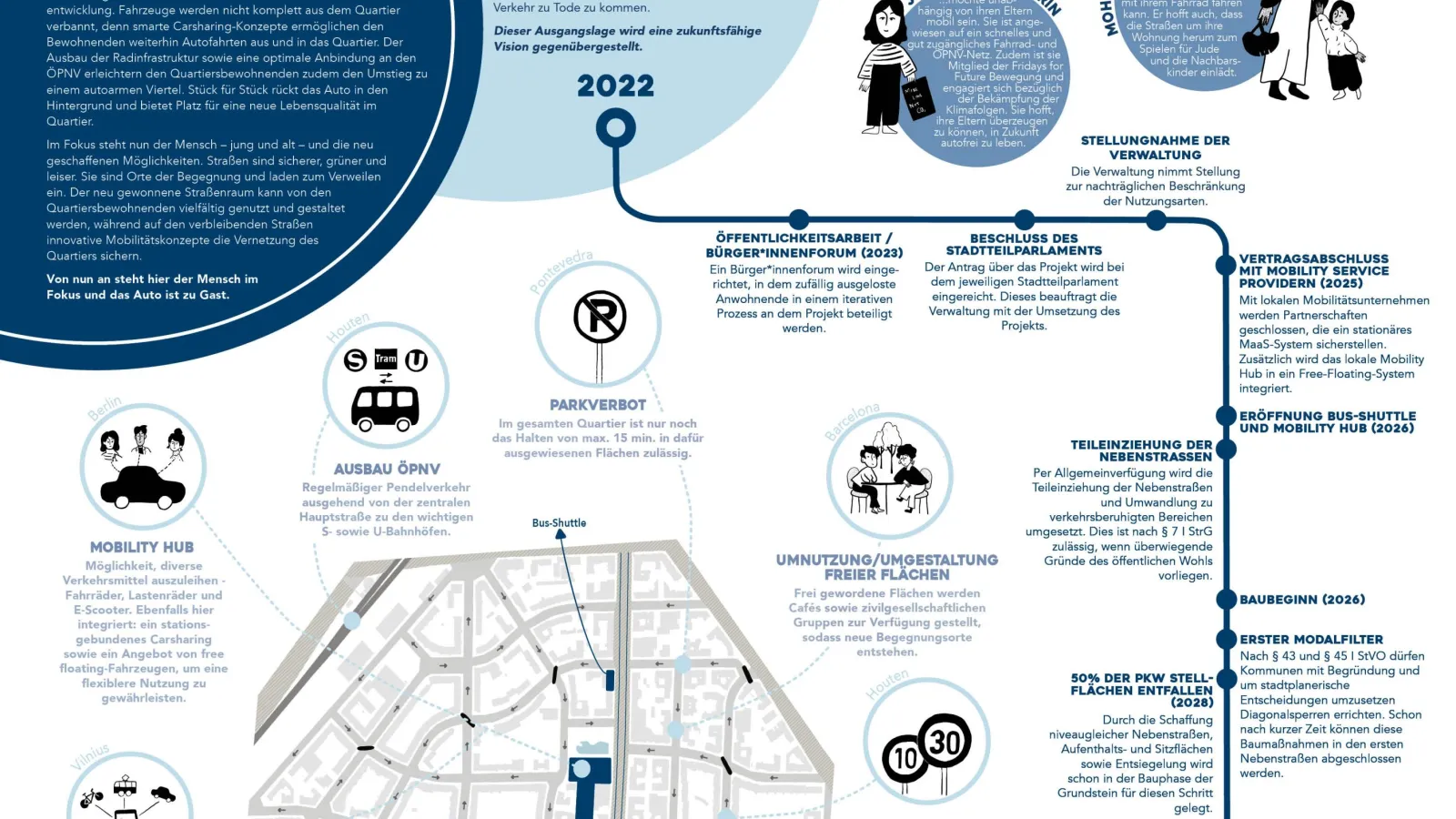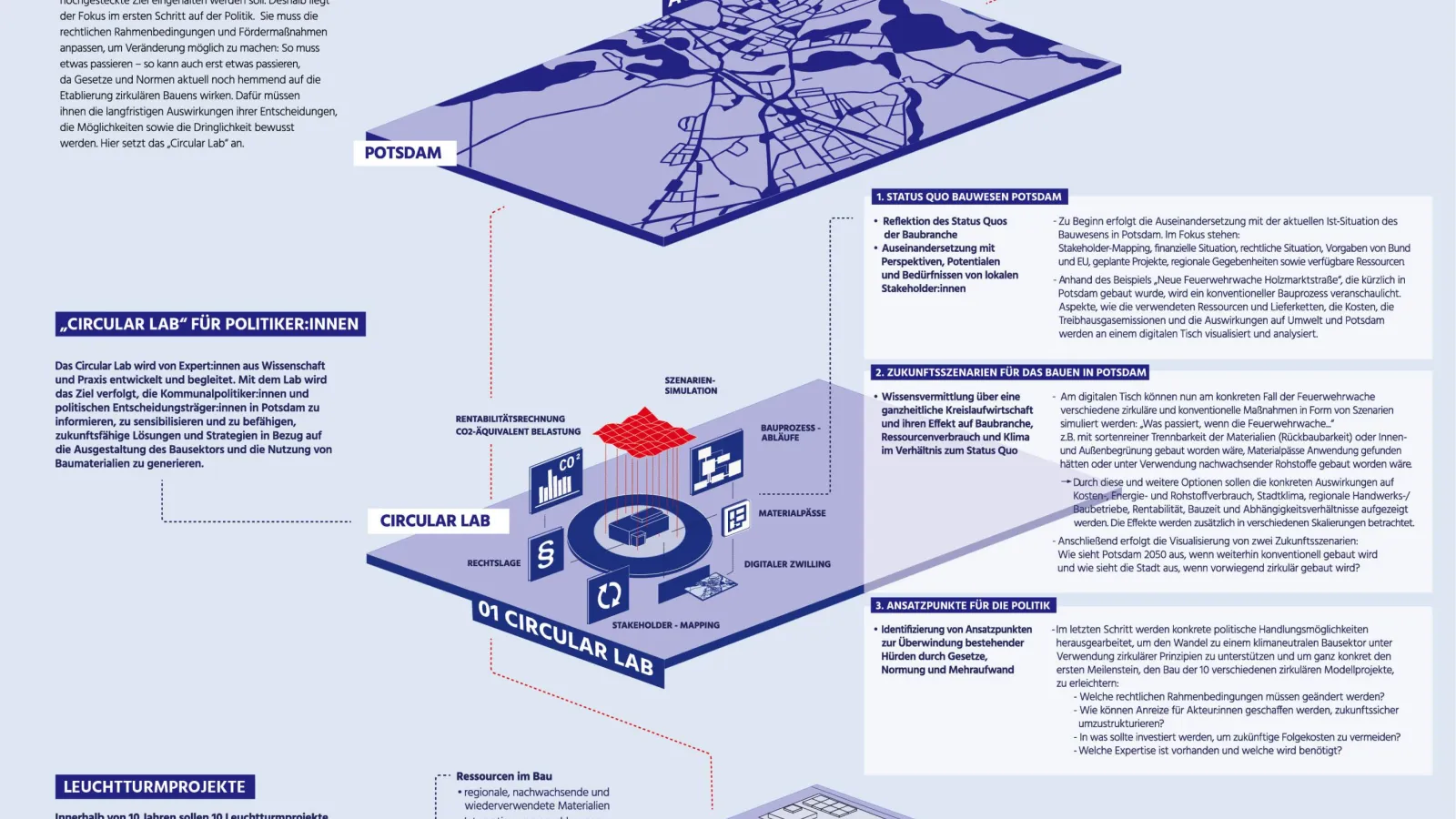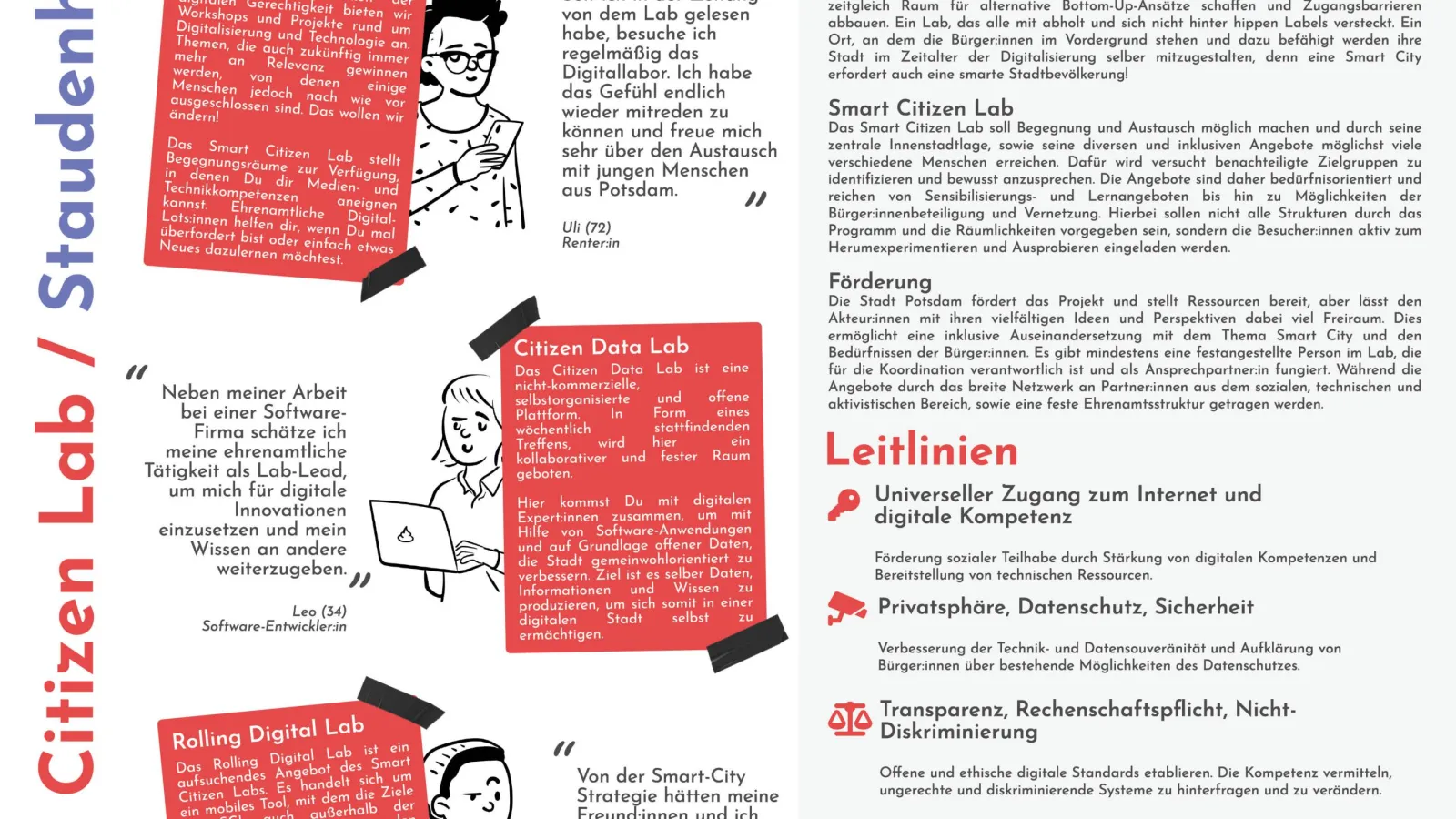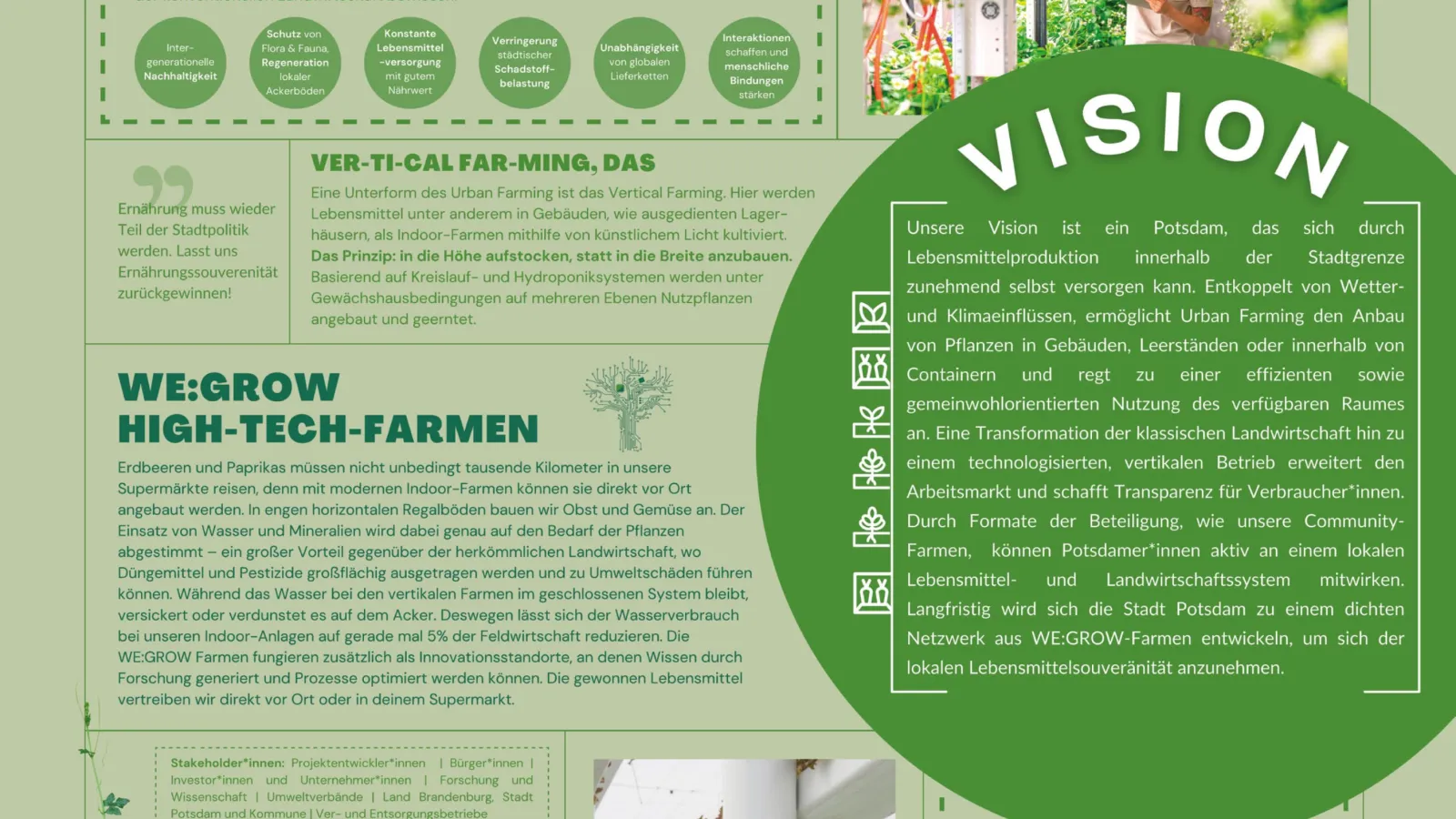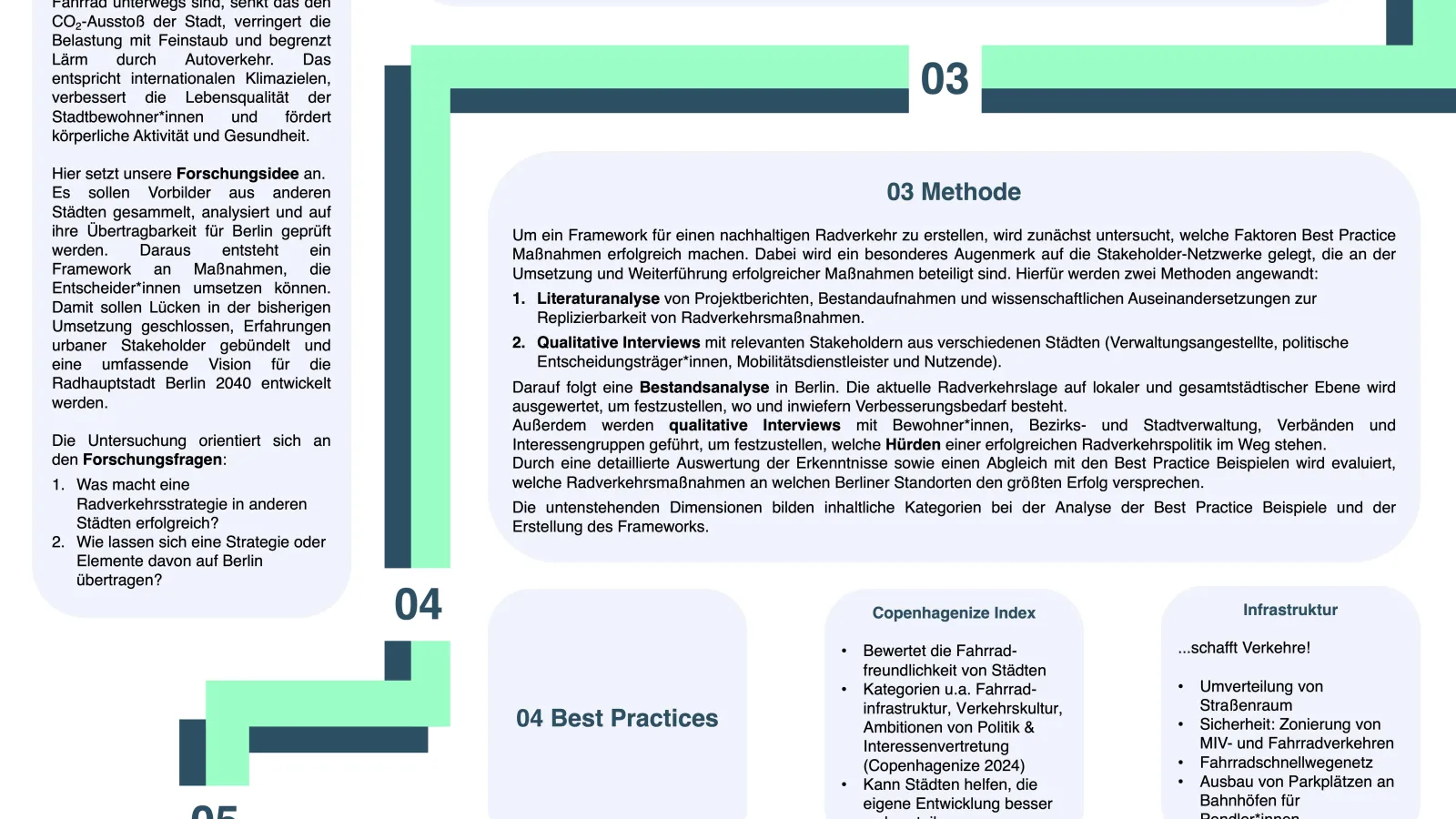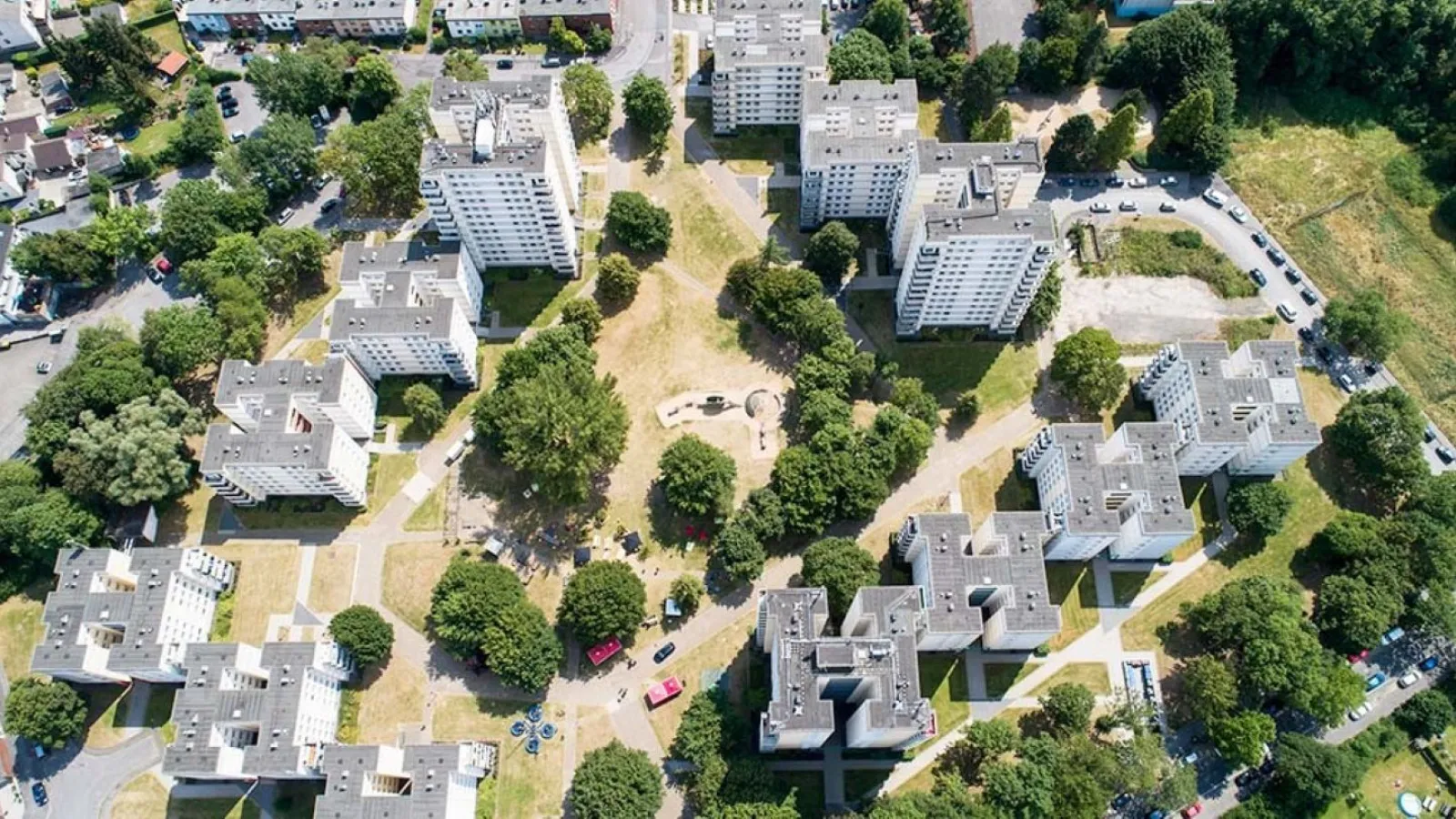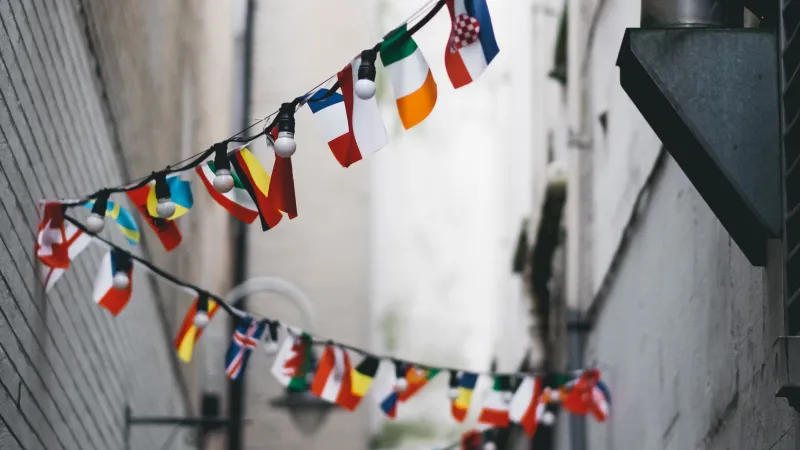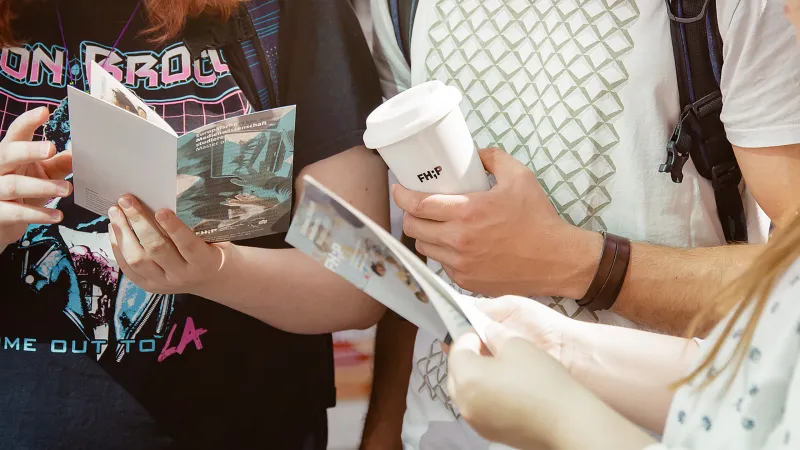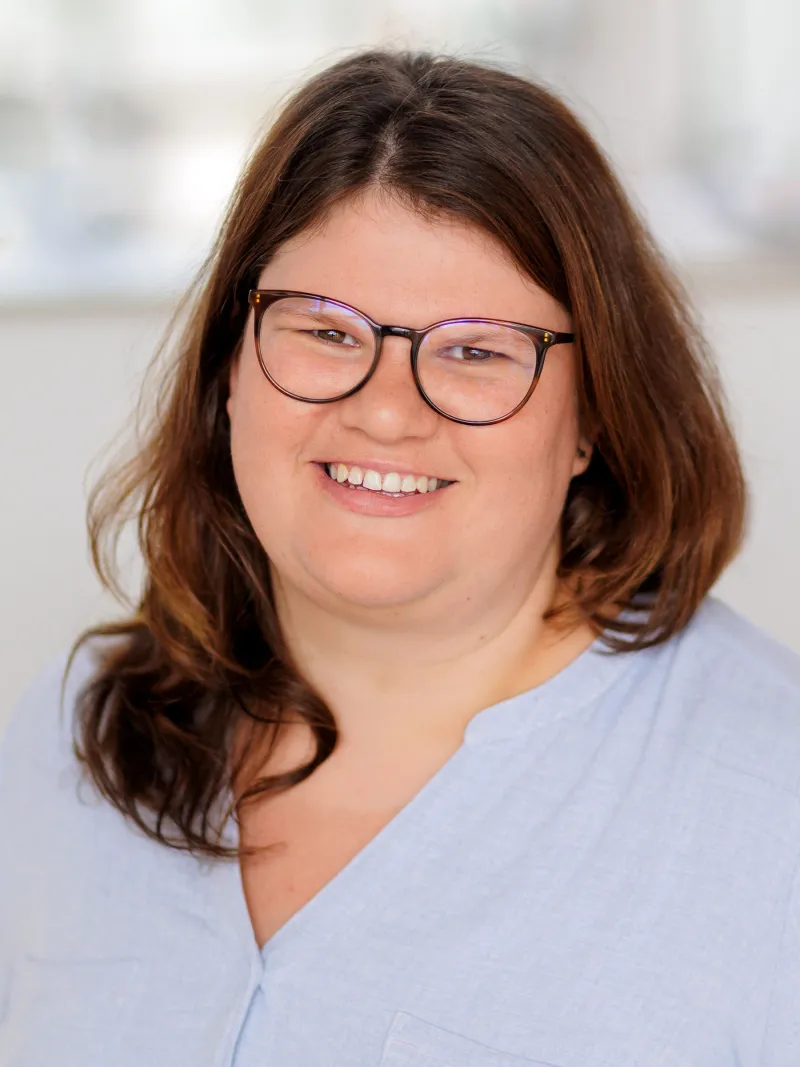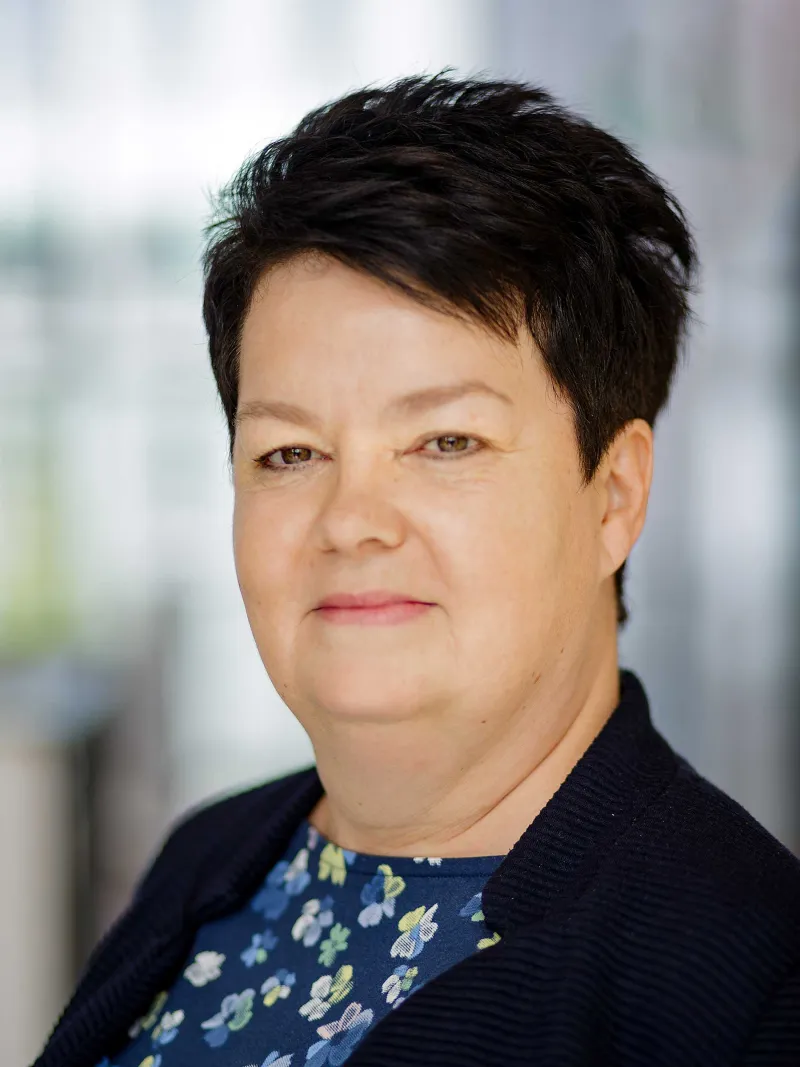The MA programme Urban Future offers students from different disciplinary backgrounds the opportunity to study urban transformation processes in an inter- and transdisciplinary way. You will acquire the necessary subject-specific and interdisciplinary skills and knowledge that will enable you to work independently, scientifically, creatively and interdisciplinarily, to critically reflect on scientific findings and to act responsibly in the context of urban transformation processes. In each academic year, there is a specific cohort topic on which in-depth content-related knowledge and contacts in research-based practice are established.
4 semesters
15/05 – 15/06 (restricted admission)
120 ECTS credits
Profile
Main topics
With regard to disciplinary specialisation, three thematic specialisations are offered that describe central aspects of urban systems and focus on the design of spatial, social, infrastructural, cultural and aesthetic processes and structures – each from a different perspective: the built, social and digital city.
Built city
- Sustainable infrastructures
- Sustainable neighbourhood development
- Urban metabolism
Social city
- Demographic change, heterogeneity and social inequality
- Participation and active shaping of transformation processes
- Attitudinal and behavioural change
Digital city
- Analysis and visualisation of urban data
- Digital transformation in media, culture and economy
- Algorithmic ethics and responsibility
Study the city of tomorrow
The transformation of urban spaces into sustainable structures is one of the great challenges of our time. This transformation encompasses ecological, spatial, structural, social, cultural, design, infrastructural, technological and economic aspects equally and interdependently, for whose challenges there are no simple and sectoral solutions. The research-oriented MA programme Urban Futures enables you to think in a networked manner and to work in an interdisciplinary manner, to tap your creativity and innovation potential and to acquire profound knowledge and contacts for research-based practice.
Video Urban Futures
The major challenges of sustainable urban development include demographic change, climate protection strategies, measures as a result of social segregation, participation processes and big data in the context of urban infrastructure (smart cities). The MA degree in Urban Futures provides the technical and methodological competences required to carry out well-founded analyses of these tasks and to develop integral solutions.
Is this degree programme right for me?
In the Master's programme, you will be enabled to think in a networked manner in the context of urban development and to work in an interdisciplinary manner, as well as to tap into your creativity and innovation potential. You will be provided with profound knowledge and contacts in research practice. The variety of content-related and methodological topics and questions inherent in the complexity of the topic of "Urban Futures" cannot be fully covered in a four-semester master's programme. This makes it all the more important to practise an attitude of lifelong research-based learning during the degree programme in order to be able to move competently in the worldwide and constantly changing range of knowledge.
You bring these qualities with you
- Interested in research and engagement with building, social science or information technology issues in the bachelor's degree programme
- Interest in creative activity
- Analytical and conceptual way of thinking
- Independence, communication, organisational and team skills
Further information
- Year topic
- FAQ at the bottom of this page
- Information on career prospects
- Social Media: Twitter, Mastodon
Information day for prospective students on the 12th of May 2025
Would you like to get to know the course content better, talk to students and discover the campus? Come to the info day of the Urban Futures degree programme of the Department of CITY | BUILDING | CULTURE on the 12th of May 2024 online via Zoom!
FAQ
This list is intended to help you answer the most frequently asked questions about our Master's programme urban futures. If you have any further questions, please feel free to send us a personal request via the email address uz@fh-potsdam.de. We will answer you as soon as possible.
Urban Future Talks
The Urban Future Talks address issues of urban transformation. We want to use them to better understand the complexity of urban processes in a digital age and show ways to achieve sustainable urban development. As a discursive format, they enable a close exchange between theory and practice. #UrbanFutureTalks
Urban Future Talk #1 | Participation in the digital Age
Guests and topics:
Jörg Noenning − Professor for Digital City Science at the HCU Hamburg
Beyond the Smart City. The smart city as a cyber-physical system
Yannick Haan − Project Manager at Hack Your City
Carolin Schröder − Head of Participation at the Centre for Technology and Society at TU Berlin
On the Limits of Participation
Moritz Maikämper − Department of Urban Management at BTU Cottbus-Senftenberg
Participation on Site: Urban Development Processes in Brandenburg
Urban Future Talk #2 | Mapping as a Critical and Transformative Practice
Guests and topics:
Adrian Labaye − HU Berlin
Performing the Urban Commons trough Collaborative Mapping
Anne Fenk − Habitat Unit, TU Berlin / MOD Institute
Remapping − Questioning the Atlas
Herbert Lohner − BUND Berlin
Mapping Environmental Justice in Urban Areas
Nina Hälker und Katrin Hovy − HCU Hamburg
"Decision Support or Shaping Decisions? – the Use Case of Finding Places"
Alexandra Toland − TU Berlin
Adam Harvey − Artist & Researcher
Geo-Visual Forensic with Computer Vision
Sebastian Meier − Technologiestiftung Berlin Ideation and Prototyping Lab
Urban Future Talk #3 | Communal living. Current trends and challenges
The social debate on communal forms of housing has changed in recent years. There is greater acceptance of communal forms of housing, whose contribution to sustainable urban development is recognised. However, the path from niche to trend is increasingly being blocked by rising land and construction prices. New funding instruments are only of limited help, as it is still unclear what makes communal forms of housing particularly worthy of funding. At the same time, the idea and practice of communal forms of housing are becoming more diverse: in addition to building groups and project initiatives that build their own homes via cooperatives or syndicates, large housing construction companies also want to integrate elements of communal living into new builds. And in new, partly commercial, partly non-profit-based mini-apartment blocks or co-work/co-living, community is being organised even more flexibly and partially. At the event, four perspectives were presented and discussed on the questions of what makes communal living special and how the social and eligible added value of ‘communal living’ can be defined.
Barbara König – Bremer Höhe eG, Berlin
Robert Ostmann – urban coop berlin eG, Berlin
Michael Matuschka – BARchitekten, Berlin
What role do architects (still) play as initiators of communal housing projects?
Ricarda Pätzold – DifU, Berlin
"The relevance and added value of communal living from the perspective of local authorities"
Contact
The staff members at the Student Counselling Services provide information to prospective students, first-year students, parents, lecturers and students on all general questions about the degree programme. If you have specific questions or concerns about the Master's programme Urban Futures, please contact the programme-specific student advisory.
Programme-specific student advisory
Programme-specific student advisory
Study Content
Course of studies
The standard period of study for the full-time degree programme Urban Futures is four semesters and concludes with a Master of Arts degree. The study plan gives you a detailed overview.
| Semester 1 | Visions of urban futures, city as a complex system, methods, electives |
| Semester 2 | Inter- and transdisciplinary project, methods, electives |
| Semester 3 | Research internship, electives |
| Semester 4 | Master's thesis and colloquium |
Study content
In the Master's degree programme Urban Futures, you will study with a high project component, which serves to translate and further develop the state of research taught in the degree programme into feasible concepts for urban problems in a practical manner. The focus is on promoting methodological competence while taking disciplinary in-depth studies into account.
In the currently valid module handbooks, study and examination regulations and statutes of the Urban Futures degree programme, you will find the module overview, a detailed description of the modules and study contents, the study plan as well as the statutes for the implementation of the university selection procedure for the Master's degree programme urban futures.
Modules
- Visions of urban futures
- System City
- Futurology
- Reading Group
- Data Science
- Inter- and transdisciplinary project
- Project and Change Management
- Modelling of Complex Systems
- Individualised study (electives)
Research internship
In cooperation with municipal and city-related partners and under the supervision of lecturers, you will carry out a practice-oriented research internship of 560 hours.
Master thesis
- Master's thesis and colloquium with accompanying supervision
Results from the Urban Futures degree programme (selection)
Research projects
More projectsTDR4HAW: Transdisciplinary Research at Universities of Applied Sciences – Status Quo and Potential of a Sleeping Giant
The project consortium analyses research at universities of applied sciences (UAS) with a special focus on transdisciplinary research projects.
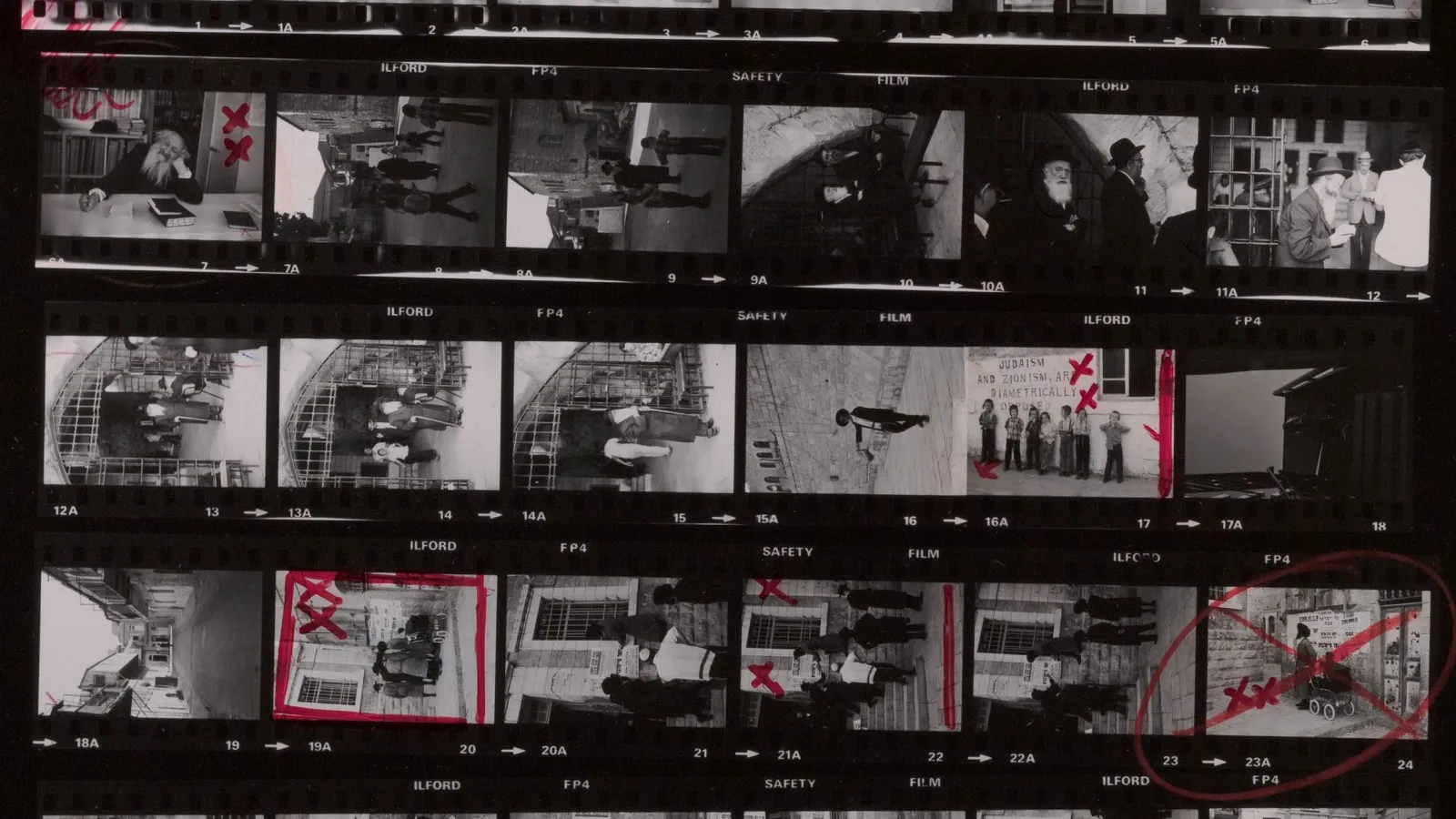
GraDiM: Granularities of Dispersion and Materiality – Visualising a Photo Archive on Diaspora
In collaboration with photographer Frédéric Brenner and his international project team, the GraDiM research project is developing theoretical and technical concepts for the visualisation of a photo archive with particular sensitivity for a collection documenting the Jewish diaspora.

In study
On the pages of the Department of CITY | BUILDING | CULTURE you will find further useful information and documents on the degree programme, for example on the organisation of the degree programme, the course catalogue and the research internship. Furthermore, current projects of the degree programme are presented there.
Career Prospects
Career prospects
You will be trained to conduct inter- and transdisciplinary research into visions of the future so that you can develop complex approaches to solutions for sustainable urban development in the context of building and housing, technical infrastructure and mobility, as well as demography and social structure. The competent use of data spaces and visualisations and other digital research methods is a central cross-cutting theme in all of the above-mentioned subject areas.
Extensive research projects and development projects are created in cooperation with practical partners from the economy, municipal administrations and scientific institutions. These enable a research-oriented study structure and direct participation in research and development processes within the framework of the study projects, internships and master's theses.
The concept of a transformation manager who works as an interface communicator, especially in the field of urban development and in the communication of political and social institutions or associations, serves as a model.
Possible areas of application
- Companies and institutions whose task is the production, design and mediation of urban living spaces, such as consulting companies, interface and communication design, research and development in the field of human-machine interfaces as well as cultural work, media and communication, marketing and tourism.
- International companies with a service portfolio for urban services and infrastructures
- Start-ups
- International organisations
- Access to management positions and higher service
Scientific career
The entitlement to a doctorate also opens the way to an academic career, e.g. in university or non-university research and teaching.
Application & Contact
Dates & requirements for your application
The most important deadlines, dates and admission requirements for the Master's programme Urban Futures are compiled here. You can find out which steps you need to take for a successful application in the next section.
Dates
- until the 15th of June: submit online application
- 6th of June 2026: Open Day at the University of Applied Sciences Potsdam
Admissions requirements
First professional university degree (at least 180 ECTS credits) in the following fields of study:
- technical/design-related: e.g. architecture and urban planning, design, urban and spatial planning, civil engineering
- social science-related: including sociology, psychology, social work, cultural work, politics, geography
- related to data and information processing: including computer science, information science, statistics and data science, computer visualistics
This is how you apply!
In the following, we explain which aspects you should pay attention to from the online application to matriculation (enrolment).
Further information
The following links provide you, and especially international applicants, with further information on the topics of application and enrolment at the University of Applied Sciences Potsdam.
International applicants
You would like to apply for studies from the first or a higher semester and have acquired your school-leaving qualification and/or university degree abroad? Then you can have degrees and achievements acquired abroad recognised and study with us.
Application & Enrolment Procedure
The application and study service provides information and advice on general questions regarding the application process, admission and enrolment at the University of Applied Sciences Potsdam, application for a higher semester, but also on topics such as compensation for disadvantages, part-time studies, waiting semesters and hardship applications.
Contact & Services
The Student Counselling Services provides information and advice on general questions about studying as well as on topics such as choosing a degree programme, application, enrolment and study organisation.
For programme-specific questions on module content, credit transfer, examinations or specialisations in the Urban Futures degree programme, the programme-specific student advisory is the right place to go.
Programme-specific student advisory
Programme-specific student advisory
Study and Examination Services
Study Info Service
studien-info-service@fh-potsdam.de
bewerbungs-service@fh-potsdam.de
campuskarte@fh-potsdam.de
Study Service
studien-service@fh-potsdam.de
Exam Service
pruefungs-service@fh-potsdam.de
Family Affairs Officer
Office hours
Tue and Thu 9.30 am – 1.30 pm
Accessibility and Inclusion Officer
Office hours
Monday and by appointment
